Are you curious about the history of industry and innovation? These are the top industrial heritage museums in North Rhine – Westphalia:

Arithmeum
BonnThe Arithmeum was founded by Bernhard Korte, the director of the institute, who also contributed his private collection of calculating machines. As of 2008, the museum's collection included 4500 calculating machines, 2000 books, 800 works of art, and 500 historical computers. This extensive collection offers a unique insight into the history and development of computing technology.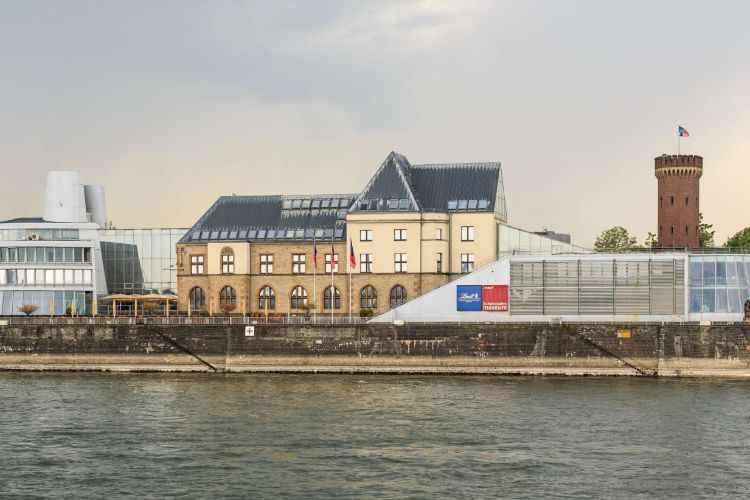
Schokoladenmuseum Köln
CologneThe Schokoladenmuseum Köln (also known as the Imhoff-Schokoladenmuseum and Imhoff chocolate museum is a museum in Cologne that is dedicated to chocolate. The museum illustrates the history of chocolate, from its beginnings with the Olmecs, Maya and Aztecs to contemporary products and production meth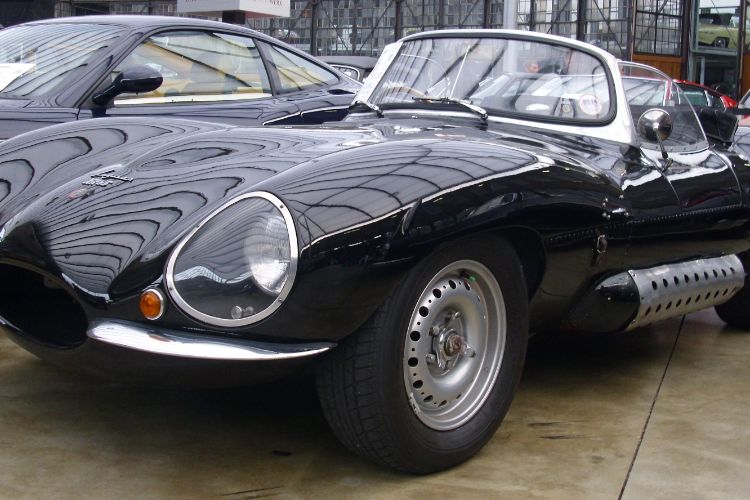
Classic Remise Dusseldorf
DüsseldorfThe Classic Remise Düsseldorf was opened on 16 September 2006 in a former roundhouse. The total area is more than 19,000 square meters. The Classic Remise Düsseldorf contains 80 boxes of glass for the exhibition of cars and 35 specialized service providers - including dealers, restorers, workshops a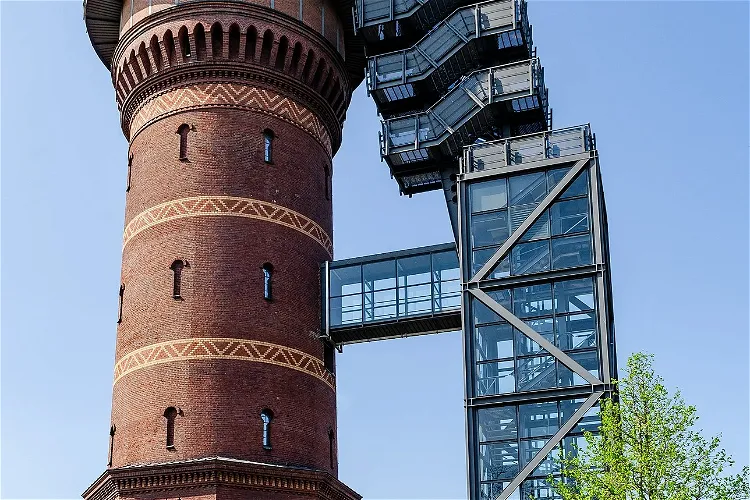
Aquarius Wassermuseum Mülheim
Mülheim an der RuhrThe Aquarius Water Museum is situated in a decommissioned water tower in Styrum, a district of Mülheim an der Ruhr. This unique location adds to the museum's charm and historical significance. It is also part of the Route of Industrial Heritage, a tourist route that connects important industrial sites in the region. This makes the museum not only a destination in itself but also a part of a larger journey through the region's industrial past.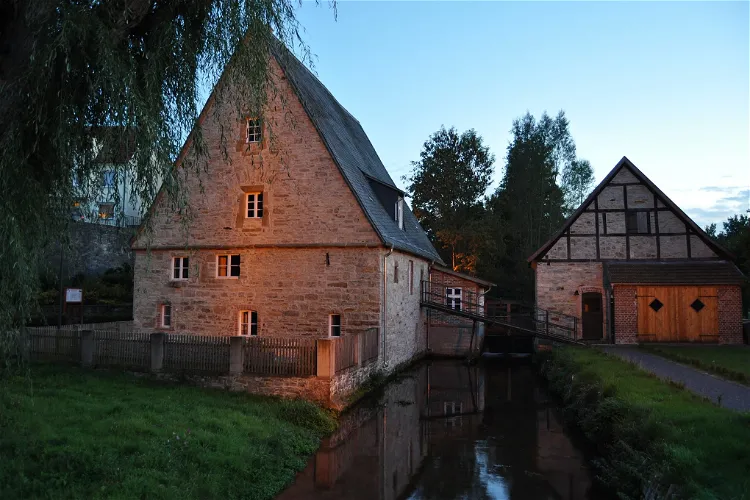
Mittel- und Bohrmühle
BürenThe Mittelmühle, located in Almetal, is one of the two ancient mills in Büren, Westphalia. It holds the distinction of being one of the few preserved color mills in the northern German region. This historical site offers a unique glimpse into the past, showcasing the traditional milling processes and the rich history of the region.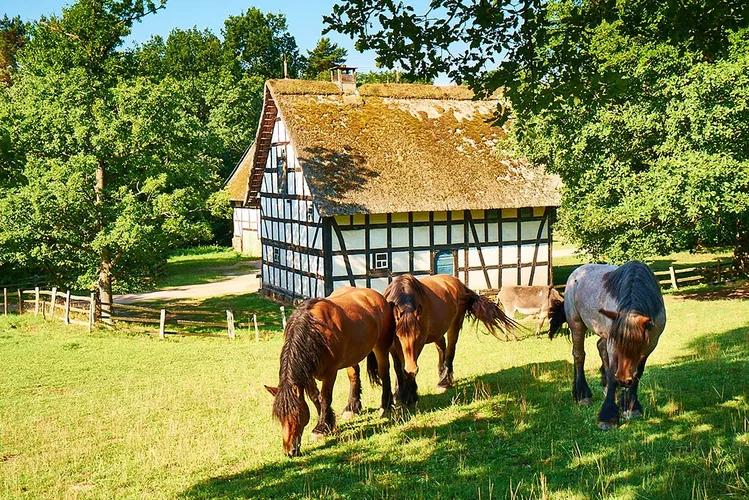
Kommern Open Air Museum
MechernichThe Kommern Open Air Museum, located in Kommern/Eifel, is recognized as one of the largest open air museums in Europe. It spans an impressive area of over 95 hectares and showcases approximately 67 historic buildings that originate from the Prussian Rhine Province. The museum is operated by the Rhineland Regional Association (Landschaftsverband Rheinland, LVR).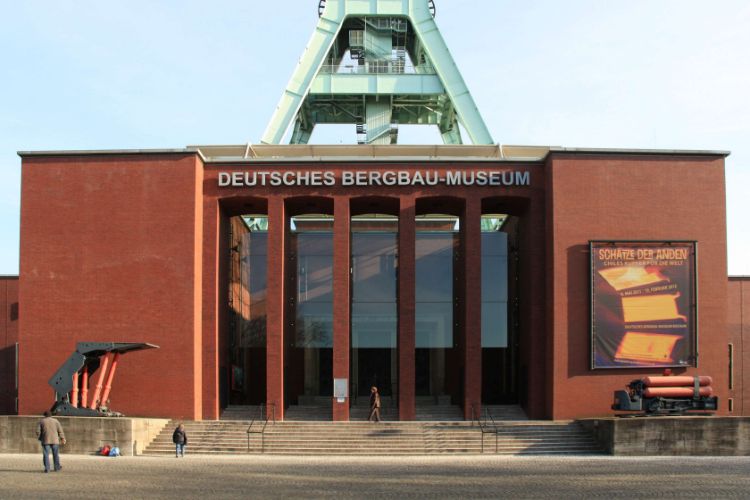
Deutsches Bergbau-Museum Bochum
BochumDeutsches Bergbau-Museum Bochum (The German Mining Museum) is a museum in Bochum that presents four tours. Tour 1 presents the history of German coal and tour 2 delves into the global relationships between humans and mining – across eras and sectors. Tour 3 and 4 cover the topics of natural resource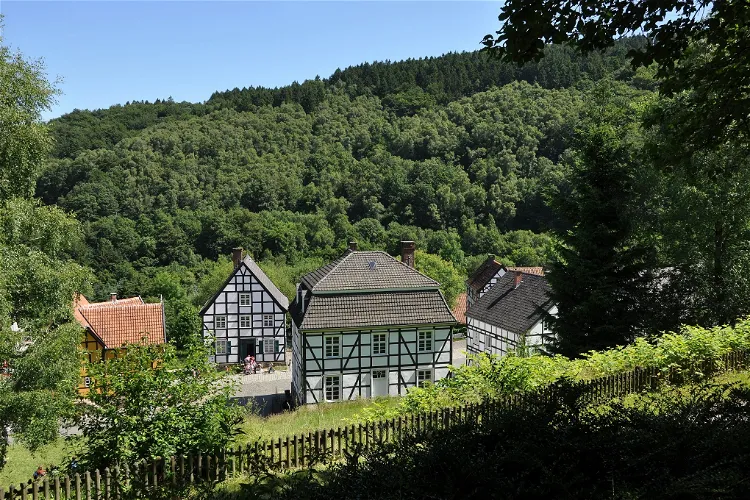
Hagen Westphalian Open-Air Museum
HagenThe Hagen Westphalian Open-Air Museum is situated in the southeastern Ruhr area, in Hagen, North Rhine-Westphalia, Germany. This location is easily accessible and offers a unique opportunity to explore the history of craft and technics in a hands-on manner.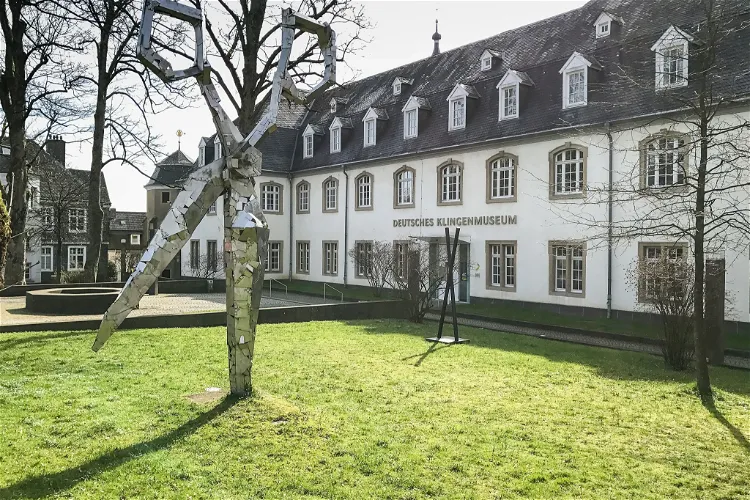
German Blade Museum
SolingenThe German Blade Museum, located in the Gräfrath district of Solingen, is a unique institution that showcases a wide range of cutlery, edged weapons, and cutting tools. The museum's collection provides a comprehensive overview of the evolution and use of blades throughout history, highlighting their significance in human civilization.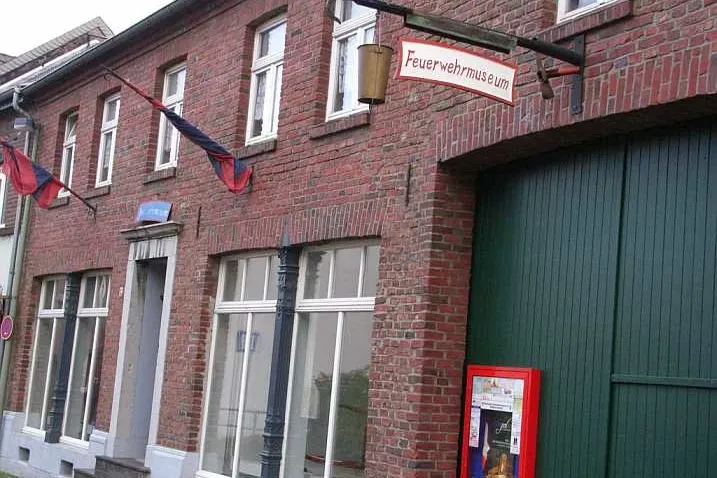
Rheinisches Feuerwehrmuseum
ErkelenzThe Rheinisches Feuerwehrmuseum, located in Erkelenz, was inaugurated on May 28, 1994. Today, it is managed by the Rheinisches Feuerwehrmuseum Lövenich e.V. association. The museum was born out of the private collection of Peter Höpgens and has since grown into a significant cultural institution in the region.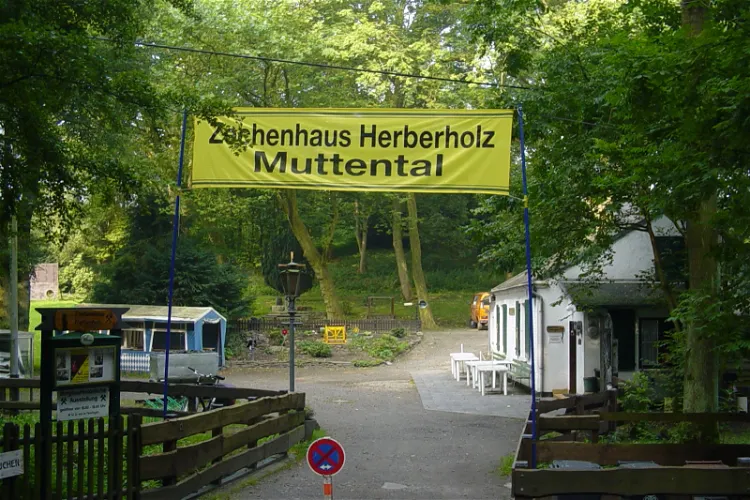
Zechenhaus Herberholz
WittenToday, the Zechenhaus Herberholz is the only remaining testament to the former Zeche Herberholz. The Zechenhaus Herberholz, built around 1875, served as the operational building for the Zeche Herberholz and Louisenglück mines. This preserved building provides a tangible connection to the past, allowing visitors to step back in time and experience the history of coal mining in the region.
Bocholt textile museum
BocholtThe Bocholt Textile Museum is located in the city of Bocholt, in the north-west of North Rhine-Westphalia, Germany. It is part of the district Borken and is situated 4 km south of the border with the Netherlands. This location makes it easily accessible for tourists from both Germany and the Netherlands.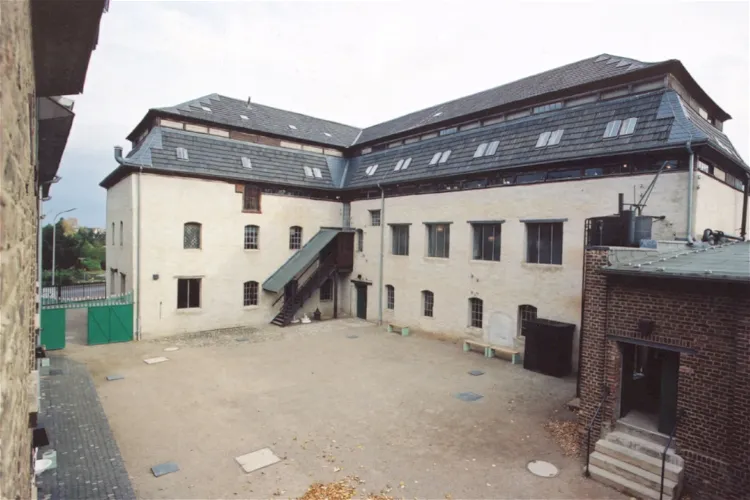
LVR Museum of Industry: Mueller Cloth Mill
Kreis EuskirchenThe museum offers a comprehensive understanding of the cloth mill production process. It features fully functional machinery and equipment from around 1900, providing a unique glimpse into the industrial past. Visitors can observe the machinery in action, offering a tangible connection to the history of the textile industry.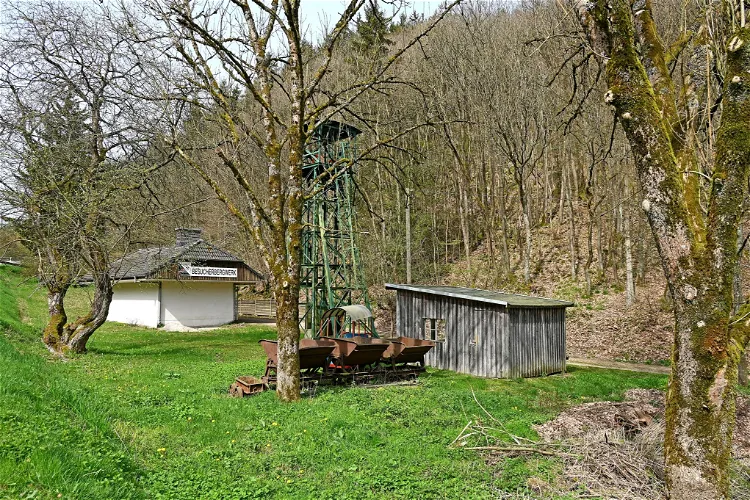
Grube Wohlfahrt
ZehnstelleGrube Wohlfahrt is a former lead ore mine situated in Rescheid, a part of the Hellenthal municipality, in the Euskirchen district of North Rhine-Westphalia. This historical site offers a unique insight into the mining industry of the past, making it an interesting destination for those interested in history and geology.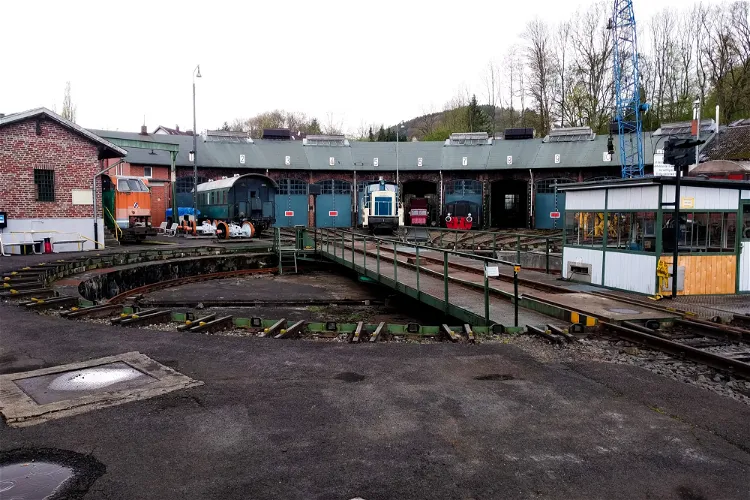
Dieringhausen Railway Museum
GummersbachThe Dieringhausen Railway Museum is a significant historical site located in Dieringhausen, a district of Oberbergischer Kreis in North Rhine-Westphalia, Germany. This museum is dedicated to preserving and showcasing the rich history of railways in the region. It is situated on the grounds of the former Deutsche Bundesbahn locomotive depot at Dieringhausen, which is a protected historical monument.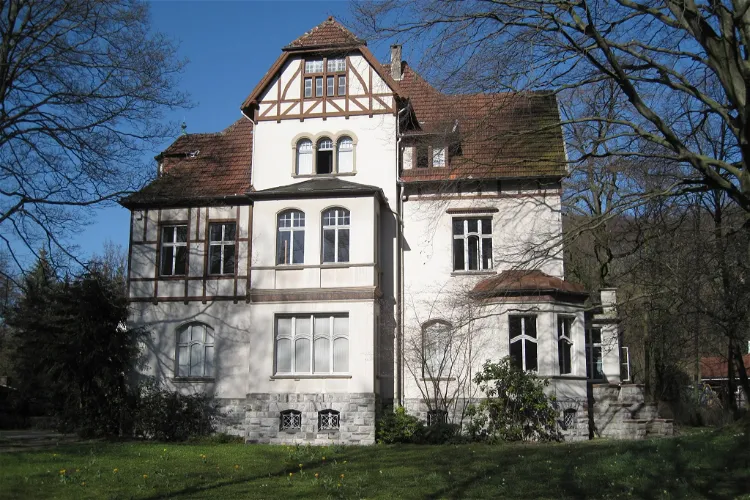
Felsenmeer Museum
HemerThe Felsenmeermuseum, which opened its doors in 1989, is a local museum located in Hemer. It is housed in the Villa Grah, a building constructed in 1902 and protected as a historical monument. This setting provides a unique backdrop for the museum's exhibits and adds to the overall experience of visiting the museum.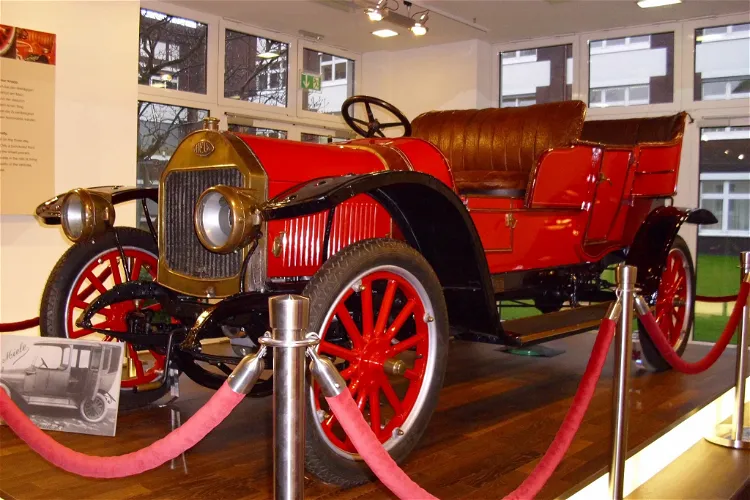
Miele-Museum
GüterslohThe Miele Museum showcases approximately 200 exhibits from the company's production. These include a wide range of items such as washing machines, milk centrifuges, vacuum cleaners, dishwashers, hand carts, bicycles, mopeds, and motorcycles. This diverse collection provides a comprehensive overview of the company's product evolution and technological advancements over the years.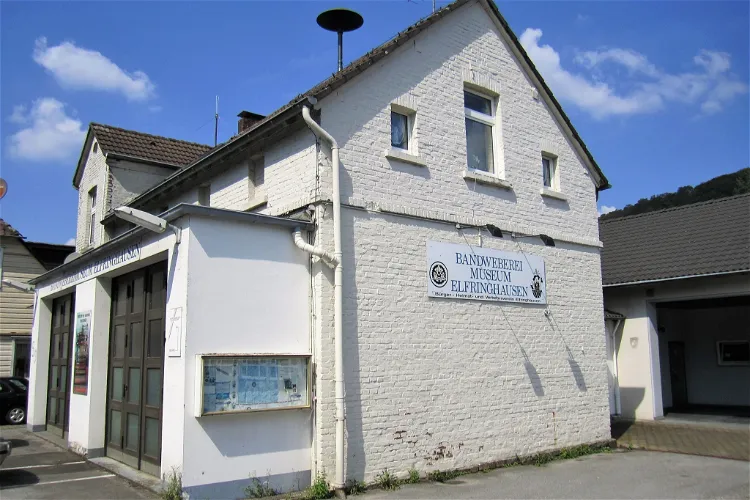
Bandwebereimuseum Elfringhausen
HattingenThe Bandwebereimuseum Elfringhausen, located in Hattingen, is a local history museum that opened its doors in 1996. It is dedicated to the local history of ribbon weaving, a significant part of the region's past. The museum provides an in-depth look into the evolution of this industry and its impact on the local community.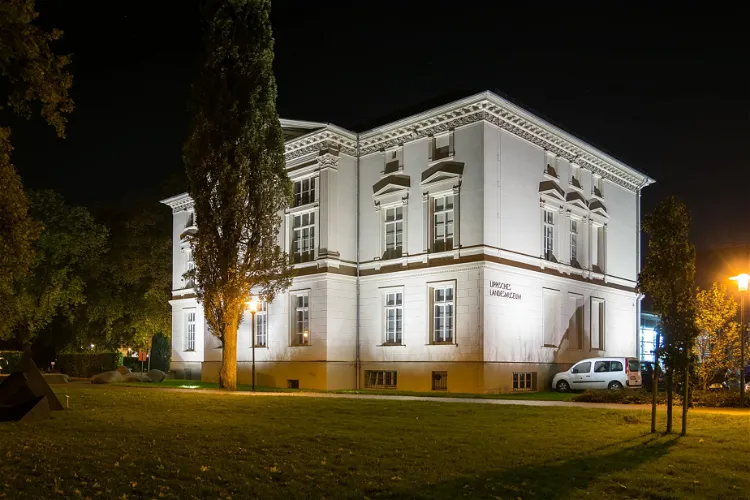
Lippisches Landesmuseum
DetmoldThe Lippisches Landesmuseum in Detmold holds the distinction of being the largest and oldest museum in Ostwestfalen-Lippe. This museum, supported by the Landesverband Lippe, is a significant cultural institution in the region, offering a wide range of exhibits and collections that span various fields of study.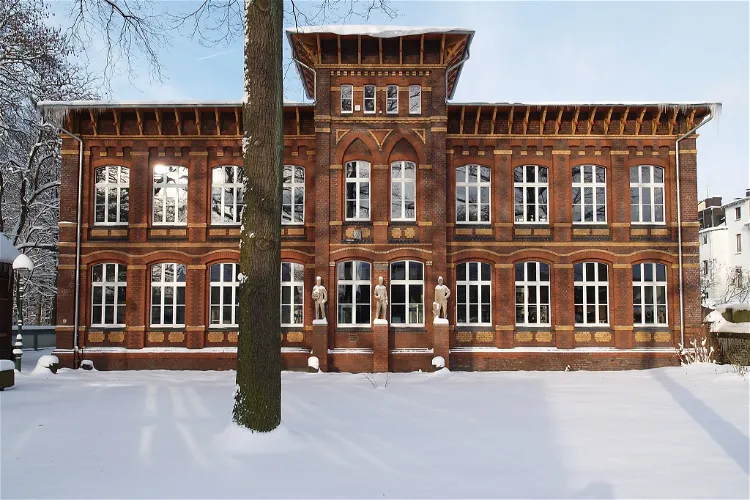
Heimatmuseum Unser Fritz
HerneThe Heimatmuseum Unser Fritz, located in Herne, is one of the three sites of the Emschertal Museum. This museum is dedicated to the social history of Herne and Wanne Eickel. It was established in the year 1926, coinciding with the founding of the city. This museum is a significant part of the city's cultural heritage and offers a deep dive into its social history.
Gruben- und Feldbahnmuseum
WittenThe German Mining and Field Railway Museum, located in Witten - Bommern in the Ruhr area, is a technical museum that offers a unique insight into the history of mining and field railways. The museum is situated on the grounds of the Zeche Theresia mine, which closed in 1892, and is part of the Muttental mining trail. This location not only provides a historical context for the exhibits but also offers a scenic backdrop for visitors.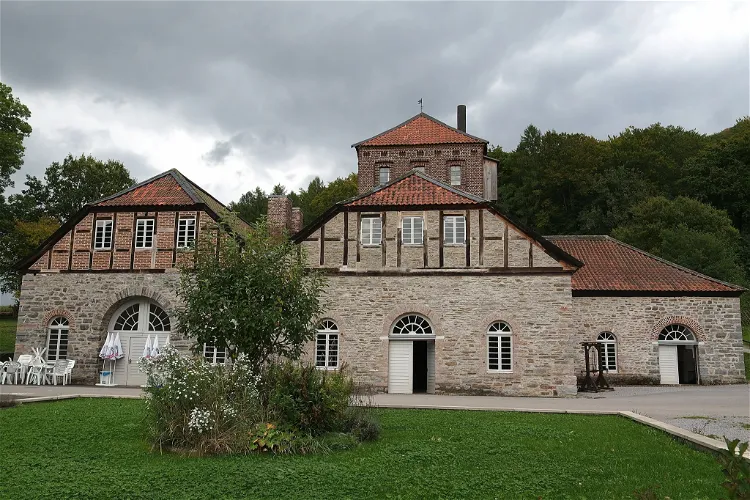
Luisenhütte
BalveThe Luisenhütte Wocklum in Balve is a significant historical site as it is the oldest preserved blast furnace facility in Germany with complete equipment. This makes it a unique destination for tourists interested in industrial history and technology. The facility offers a glimpse into the past, showcasing the technological advancements of the time.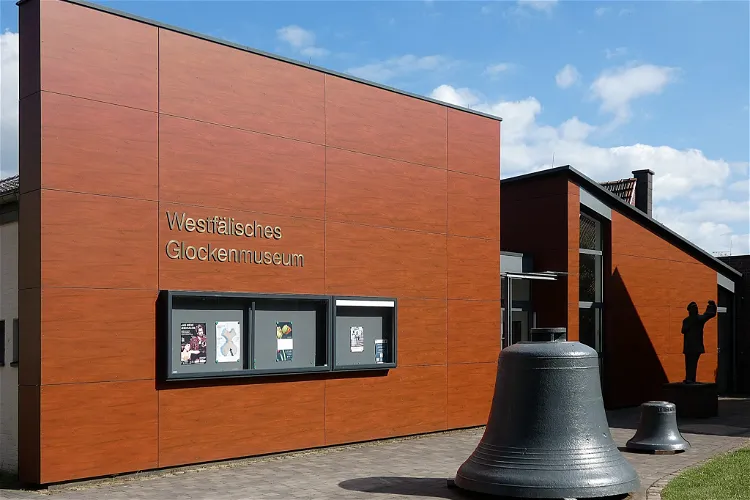
Westphalian Bell Museum Gescher
GescherThe Westphalian Bell Museum is situated in the charming municipality of Gescher, which is part of the Borken district in the Münster administrative district. This location offers visitors a chance to explore the rich history and culture of the region while also enjoying the unique exhibits of the museum.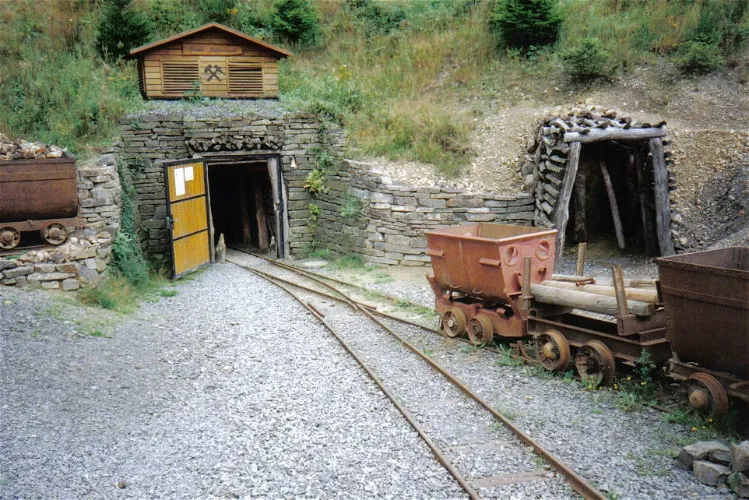
Besucherbergwerk Grube-Silberhardt
WindeckThe Grube Silberhardt, located in Öttershagen, a district of Windeck, is a historical ore mine that was reopened as a visitor mine on September 13, 2003. This site offers a unique opportunity for visitors to explore the history and workings of a former ore mine.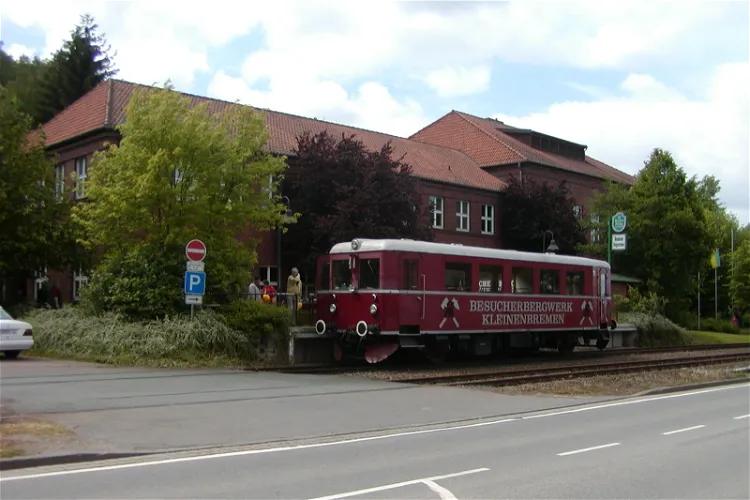
Besucherbergwerk & Museum Kleinenbremen
Porta WestfalicaThe Besucherbergwerk Kleinenbremen, located in the district of Kleinenbremen in the East Westphalian city of Porta Westfalica, is a mine that was opened to the public in May 1988. It is situated in a part of the decommissioned Wohlverwahrt mine in the Weser Mountains. This historical site offers a unique insight into the mining industry of the past.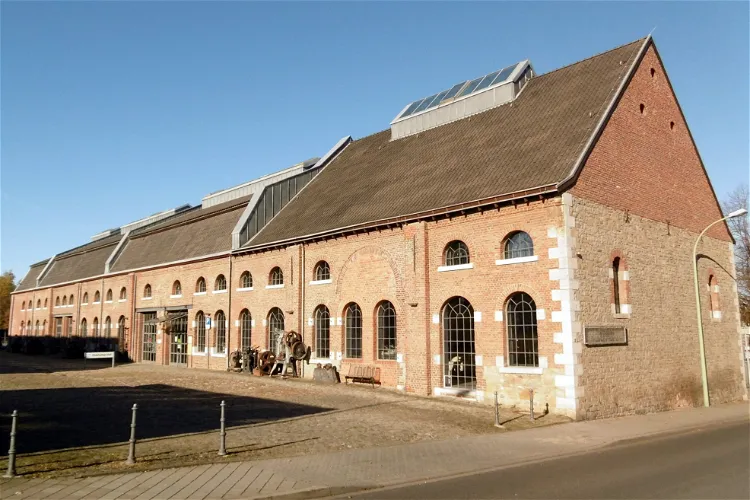
Museum Zinkhütter Hof
StolbergThe Museum Zinkhütter Hof, located in Stolberg, is dedicated to the industrial, economic, and social history of the Aachen region. It provides a comprehensive insight into the region's past, focusing on its industrial development and the social changes that came with it. The museum's exhibits cover a wide range of topics, from the production of materials such as brass and zinc to the history of local companies.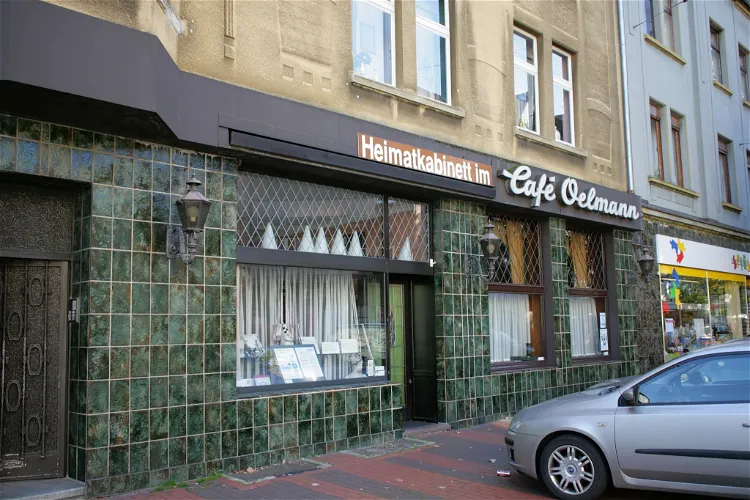
Heimatkabinett im Café Oelmann
HertenThe Heimatkabinett in the old Café Oelmann is a local history museum situated in the Westerholt district of Herten. This museum is a great place for tourists who are interested in learning about the local history and culture of the area.
Deutsches Automatenmuseum
EspelkampThe Deutsches Automatenmuseum (DAM) is a technology museum situated in the East Westphalian city of Espelkamp. It is a unique destination for those interested in the history and evolution of coin-operated machines. The museum offers a fascinating insight into the world of automated technology, from its early beginnings to its current state.
Baumberger Sandstein Museum
HavixbeckThe Baumberger Sandstone Museum, located in Havixbeck near Münster, is dedicated to the fine-grained yellow Baumberger sandstone, also known as limestone sandstone, which is mined in the nearby Baumberger mountains. This museum provides an in-depth look into the history and significance of this unique type of sandstone.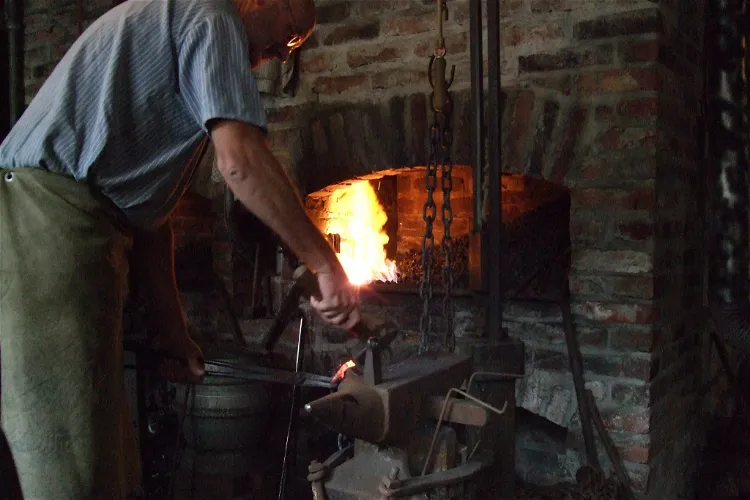
Kettenschmiedemuseum Sichtigvor
WarsteinThe Kettenschmiedemuseum, located in the Warstein district of Sichtigvor, offers a unique insight into the manual production of chains. This process, once practiced by chain smiths, is showcased in a detailed and engaging manner. Visitors can learn about the traditional techniques and skills involved in this craft, providing a fascinating glimpse into the past.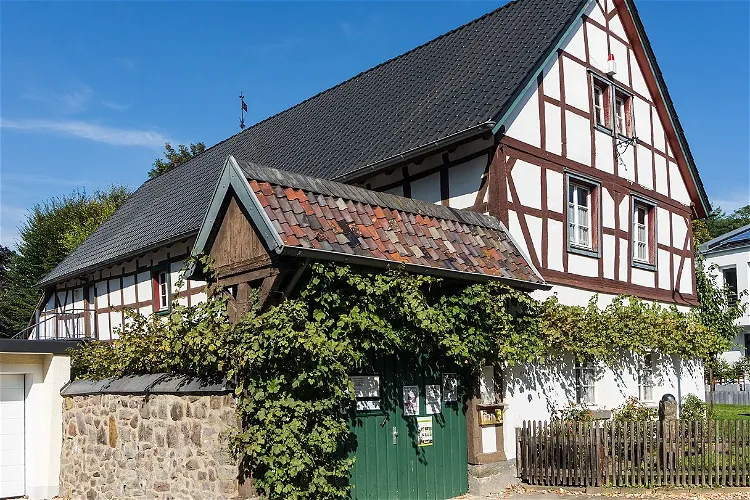
Brückenhofmuseum
KönigswinterThe Brückenhofmuseum is a local history museum situated in Oberdollendorf, a district of the city of Königswinter in the Rhein-Sieg district of North Rhine-Westphalia. The museum began its operation in 1991 in the former winery "Brückenhof" (Bachstraße 93), a half-timbered house dating back to the 17th century. This location offers a unique historical setting for the museum's exhibits.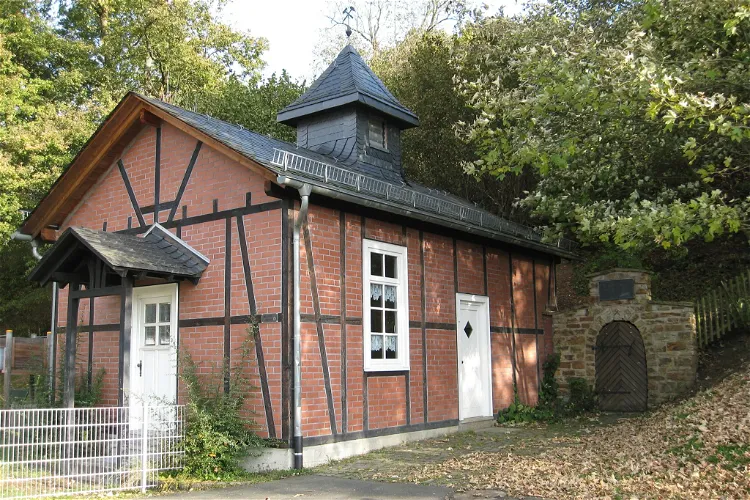
Besucherbergwerk Wodanstolln
SalchendorfThe Wodanstolln is a show mine located in Salchendorf, which is now a part of the municipality of Neunkirchen in the Siegen-Wittgenstein district. This historical site offers a unique insight into the mining history of the region.
Oberschlesisches Landesmuseum
RatingenThe Oberschlesisches Landesmuseum (OSLM) in Ratingen is a museum dedicated to the history and culture of Upper Silesia. It is run by the Stiftung Haus Oberschlesien, a private law foundation established in 1970. The museum is conveniently located directly opposite the old museum building, known as "Haus Oberschlesien", in Ratingen-Hösel. This is where the foundation currently has its headquarters.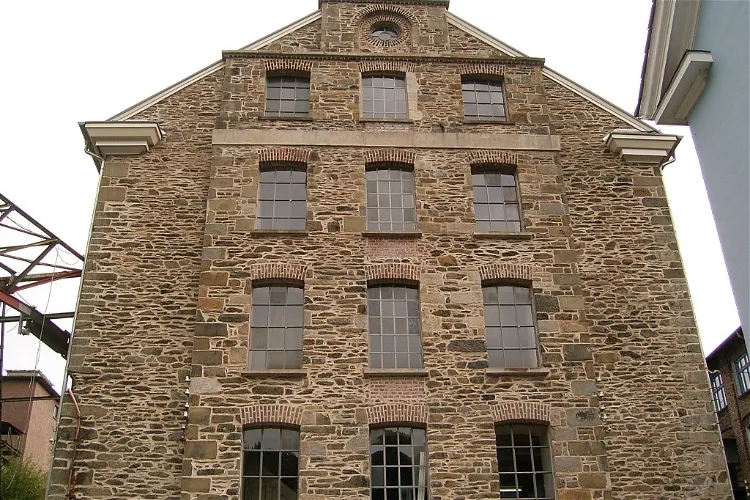
Wülfingmuseum
RadevormwaldThe Wülfing Museum, located in Radevormwald - Dahlerau in the Oberbergischer Kreis in North Rhine-Westphalia, Germany, is a textile technology museum. It is situated on the site of the former cloth factory 'Johann Wülfing & Son'. This location offers a unique insight into the history of textile production and the industrial revolution in Germany.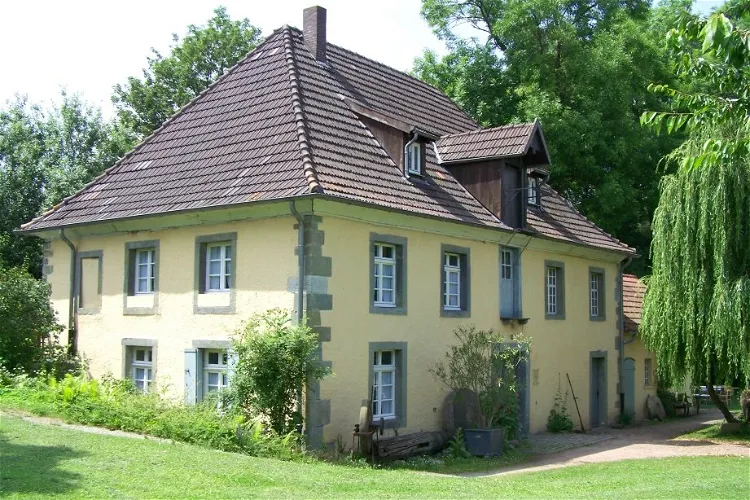
Schäferkämper Wassermühle
ErwitteThe Schäferkämper Wassermühle has a rich history dating back to 1748 when it was first built. It served as a commercial milling operation until 1933. After the death of the last owner in 1989, the mill was acquired by the North Rhine-Westphalia Foundation. With the support of the foundation, the local history friends of Bad Westernkotten restored the mill and transformed it into a museum. This historical transformation adds to the mill's appeal for tourists interested in local history and culture.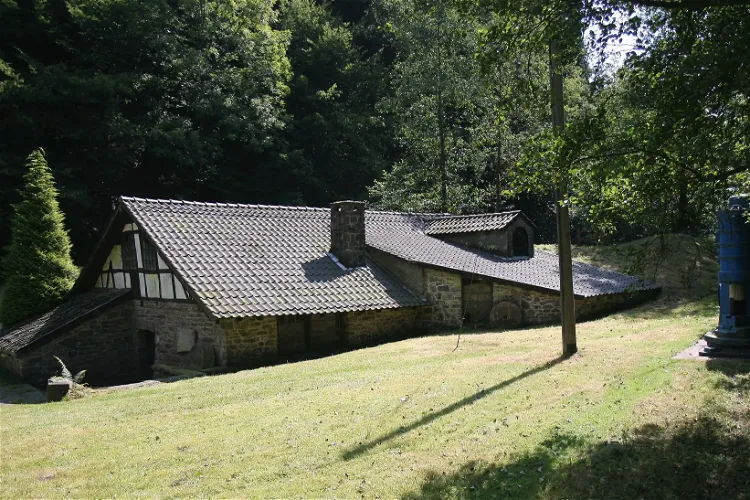
Ahe-Hammer
HerscheidThe Ahe-Hammer is a monument-protected building located in Herscheid, a municipality in the Märkischer Kreis, North Rhine-Westphalia. This historical site offers a unique glimpse into the industrial past of the region and is a significant part of its cultural heritage.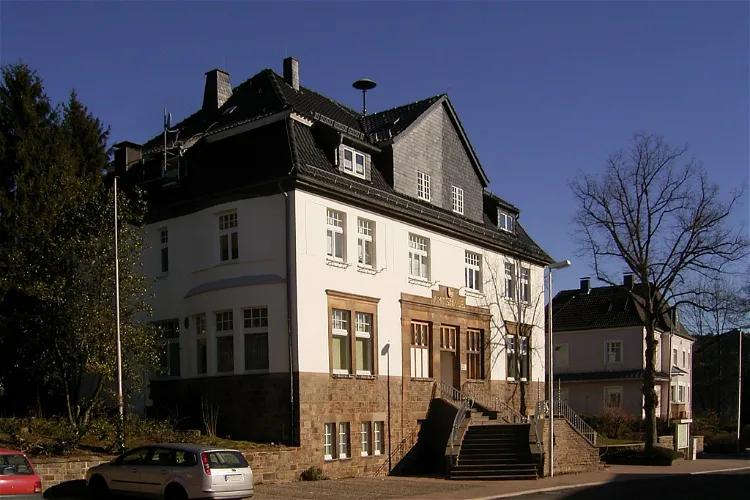
Bakelit-Museum Kierspe
Kierspe-DorfThe Bakelit-Museum Kierspe is a unique museum dedicated to Bakelite, a material invented in 1905 by Leo Hendrik Baekeland and recognized as the first industrial plastic. The museum is located in the Old Town Hall of Kierspe, adding a touch of historical charm to the experience.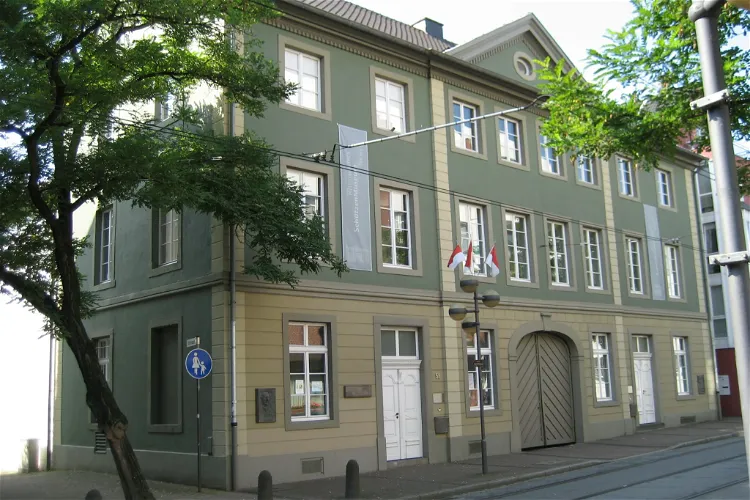
Haus Rottels
NeussHaus Rottels, located on Oberstraße in Neuss, is a former monastery building that was transformed into a residence by the affluent manufacturer and soap boiler, Franz Rottels, around 1820. The building also housed a soap production facility, adding to its historical significance.
Glasmuseum
RheinbachThe Glasmuseum in Rheinbach, established in 1968, is situated in the Himmeroder Hof at Himmeroder Wall 6. This location is steeped in history and provides a unique setting for the museum.
Eggemuseum Altenbeken
AltenbekenThe Egge Museum, situated in Altenbeken, North Rhine-Westphalia, is a unique destination that primarily displays exhibits from the era when iron extraction and processing played a significant role in the region. Visitors can gain insights into the historical importance of iron industry in Altenbeken and explore a variety of exhibits that reflect this period.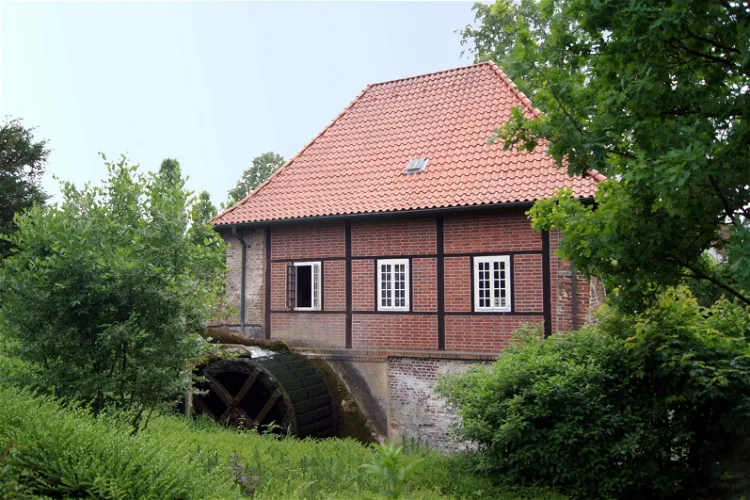
Bischofsmühle
CoesfeldThe Bischofsmühle is a unique watermill located in Coesfeld, characterized by its overshot water wheel. This type of water wheel is a significant feature of the mill, as it is powered by the weight of water falling from above, rather than from the flow of water underneath. This makes the Bischofsmühle a fascinating site for those interested in historical engineering and architecture.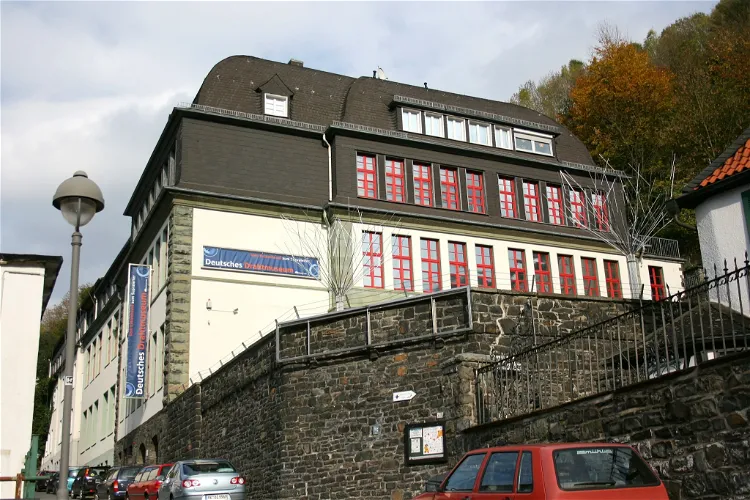
Deutsches Drahtmuseum
AltenaThe Deutsches Drahtmuseum in Altena is a unique institution, being the only one of its kind in the world. It was established in 1965 by the Altena district, following the initiative of industrialist Paul Rump. This museum offers a unique insight into the history and significance of wire in industry and everyday life.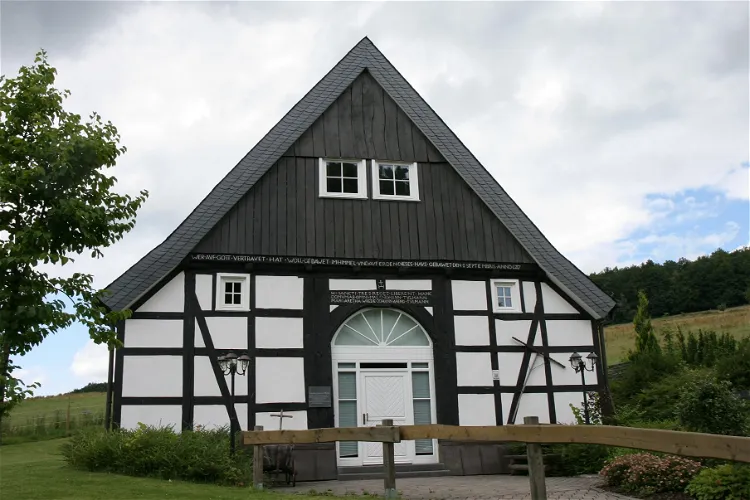
Heimatmuseum Alte Mühle
GevelinghausenThe Heimatmuseum "Alte Mühle" is situated in the Gevelinghausen district of the city of Olsberg. This location is easily accessible and offers a unique opportunity to explore the rich history of the region.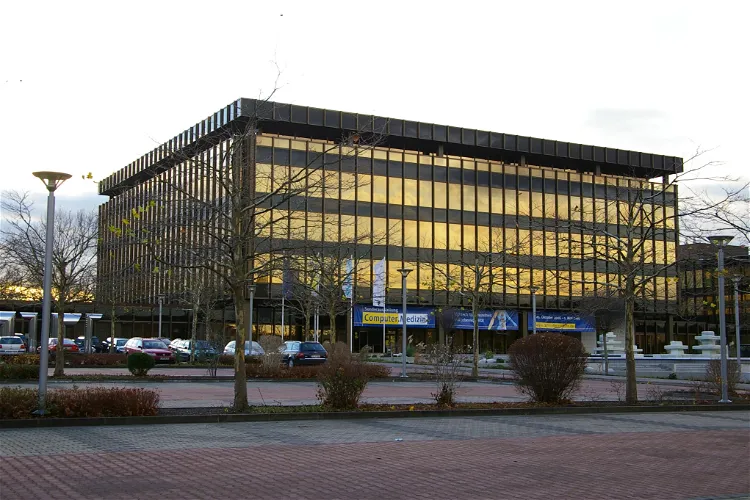
Heinz Nixdorf MuseumsForum
PaderbornThe Heinz Nixdorf MuseumsForum (HNF) is a computer museum located in Paderborn, Germany. It is named after Heinz Nixdorf, a computer pioneer and entrepreneur from Paderborn. The museum is a tribute to Nixdorf's contributions to the field of computer technology and his entrepreneurial spirit.
LWL Industrial Museum Mine Nachtigall
WittenThe LWL Industrial Museum Zeche Nachtigall is a technical museum situated in Witten Bommern. It is an extension of the LWL Industrial Museum and is located on the old factory site of the Zeche Nachtigall at Nachtigallstraße 35-37. The museum is a significant point on the Route of Industrial Culture and serves as an information center for the Geopark Ruhrgebiet.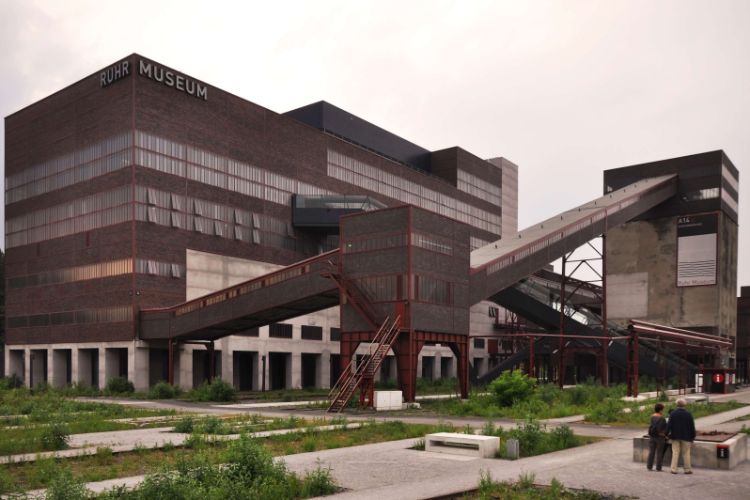
Ruhr Museum Essen
EssenThe Ruhr Museum is a natural history and cultural history museum for the Ruhrgebiet (the Ruhr area) in Essen. In the permanent exhibition in the museum, it documents nature, culture and history of the Ruhr area and thus the development of the largest agglomeration in Europe.- 47
Felsenkeller Brauereimuseum
MonschauThe Felsenkeller Brewery Museum has a rich history dating back to 1847 when beer brewer Wilhelm Braun purchased the "Grüneburg" at the "Röetgen". He expanded the existing brewery by adding a dining room and an open bowling alley, enhancing the visitor experience. 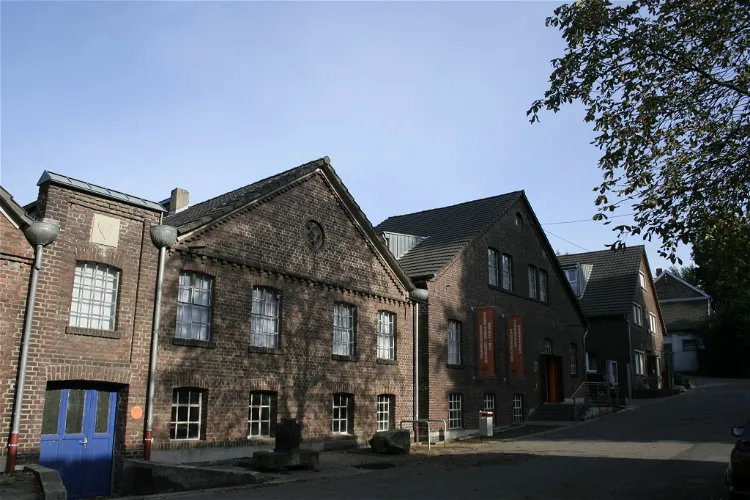
Industriemuseum Freudenthaler Sensenhammer
LeverkusenThe Industriemuseum Freudenthaler Sensenhammer, located in the Schlebusch district of Leverkusen, is a historic scythe factory. This museum offers a unique opportunity to explore the history of industrial manufacturing in the region, with a focus on the production of scythes. The factory's original buildings and workstations have been preserved, providing a glimpse into the past.
Hebezeug-Museum
WittenThe Hebezeug-Museum in Witten is a unique destination that showcases a collection of old machines used for lifting and moving loads. The museum is owned by the company J. D. Neuhaus, a renowned name in the industry. Visitors can explore a variety of exhibits that provide a glimpse into the history and evolution of these machines.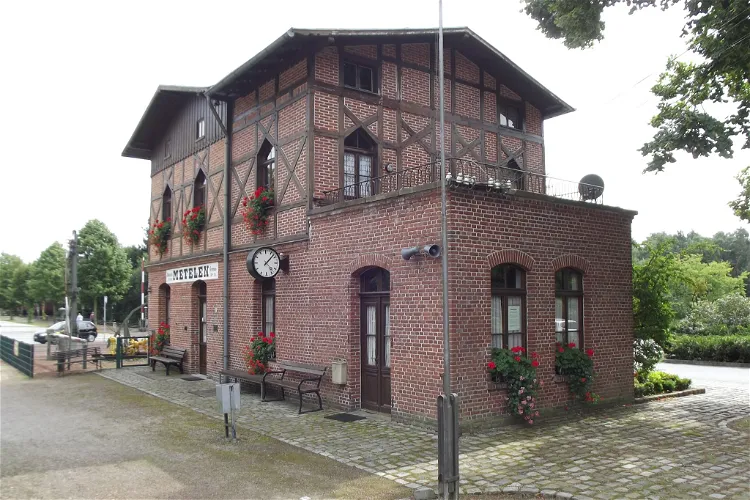
Eisenbahnmuseum Metelen Land
MetelenThe Eisenbahnmuseum Metelen Land is situated on the Münster–Enschede railway line (route 407). Since 1986, it has been operated and maintained by the Eisenbahn-Interessengemeinschaft Metelen e. V. (EIG). This museum offers a unique insight into the history and operation of the railway in this region.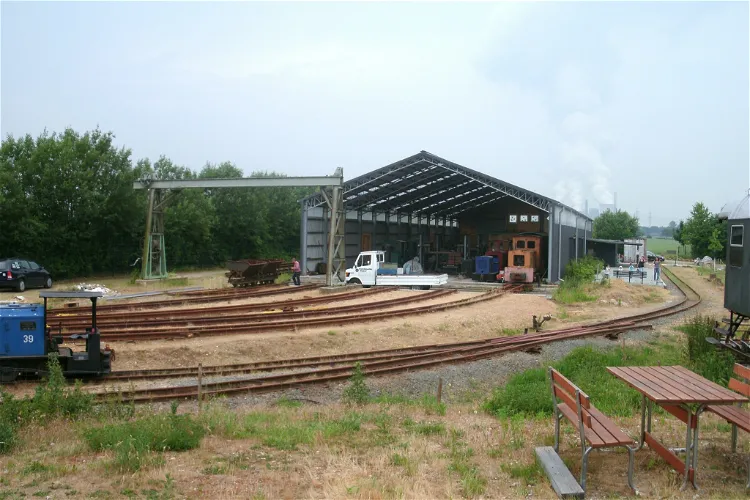
Feldbahnmuseum Oekoven
RommerskirchenThe Feldbahnmuseum Oekoven is a railway museum located in the Rommerskirchen district of Oekoven. It was founded on January 31, 1976, by a group of railway enthusiasts. This privately initiated museum is a testament to the passion and dedication of its founders, making it a unique destination for those interested in railway history.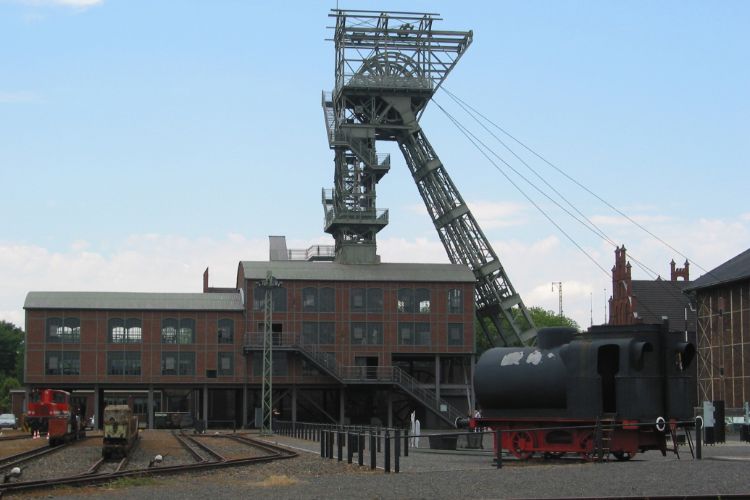
LWL-Industriemuseum Zeche Zollern
DortmundThe LWL-Industriemuseum Zeche Zollern (LWL Industrial Museum - Provincial Westphalian Museum of Industrial Culture) belonged to the Stiftung Industriedenkmale und Geschichtskultur (Foundation of Industrial Heritage and Historical Culture). Today, the LWL Industrial Museum Zeche Zollern in Dortmund c
Red Dot Design Museum
EssenThe Red Dot Design Museum is a museum in Essen where the winning products of the Red Dot Design Award are presented. The Red Dot Design Award is an international product design and communication design prize awarded by the Design Zentrum Nordrhein Westfalen with prize categories for product design,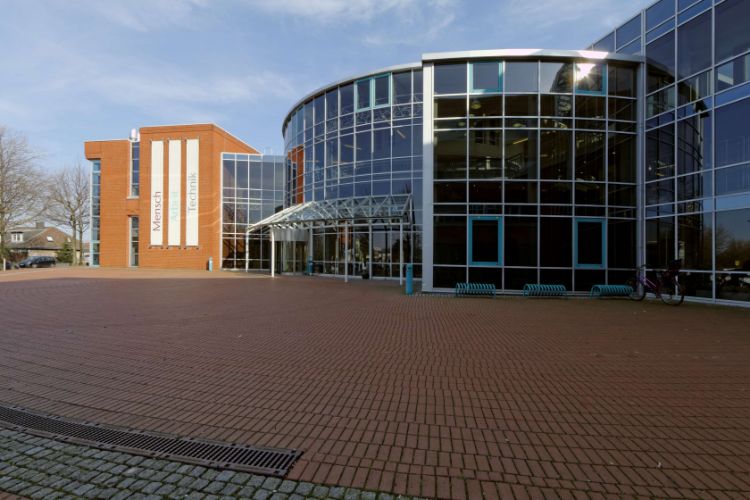
DASA
DortmundThe DASA – Arbeitswelt Ausstellung is an exhibition in Dortmund that focuses on depicting the relationship between work, technology, and people. With an interactive exhibition, the DASA focuses on people with their physical, mental, social and cultural concerns. With its leitmotif man - work - techn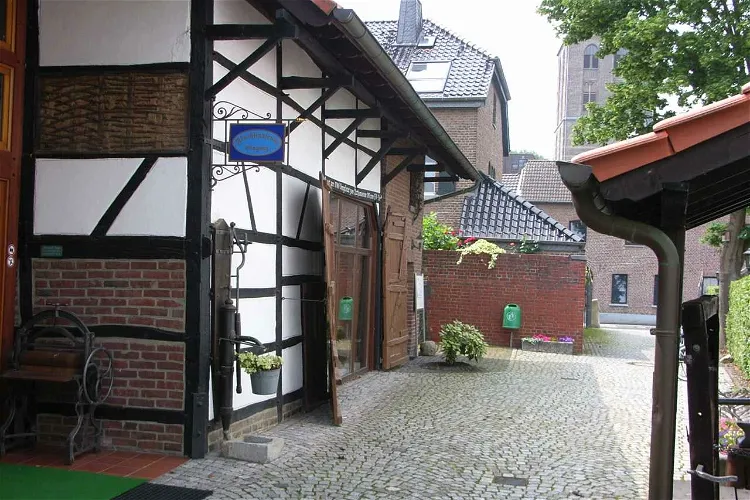
Flachsmuseum
WegbergThe Beecker Flax Museum, situated at Holtumer Straße 19a in Beeck near Wegberg, is a unique institution dedicated to the cultivation and use of flax. The museum provides an in-depth look into the various stages of flax production, from sowing the seeds to the final textile product. It offers a fascinating insight into the historical significance of flax in the region's agriculture and textile industry.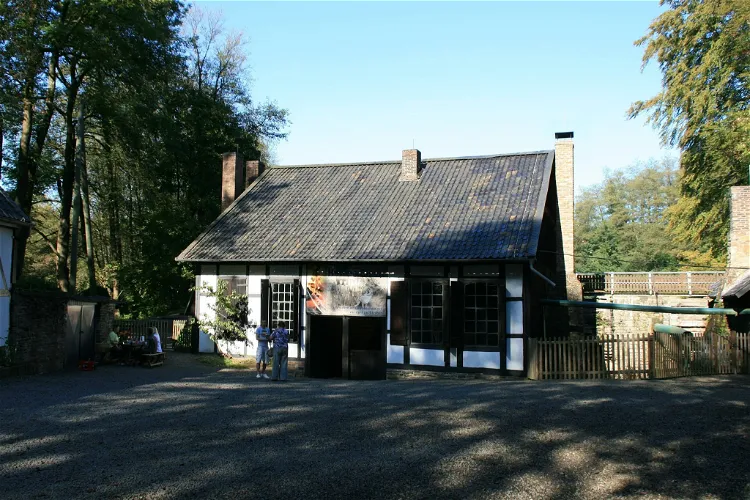
Oelchenshammer
EngelskirchenThe Oelchenshammer is a unique historical site located near Bickenbach in the Oberbergischer Kreis. It is one of the last remaining water-powered forges in the Rhineland, offering visitors a glimpse into the region's industrial past. The forge, along with the blacksmith's house, is now an external site of the LVR Industrial Museum Kraftwerk Ermen & Engels in Engelskirchen.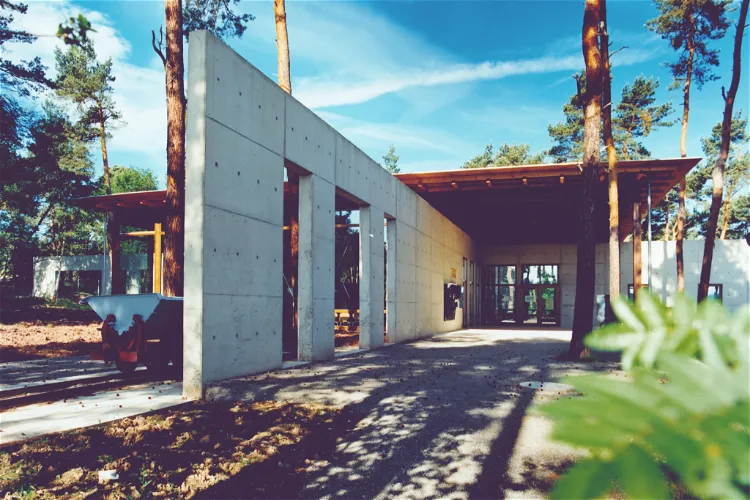
Bergbaumuseum Mechernich
MechernichThe Bergbaumuseum Mechernich, also known as Grube Günnersdorf, is a city museum located in Mechernich, within the Euskirchen district. This museum offers a unique insight into the history and culture of the region, particularly focusing on its mining heritage.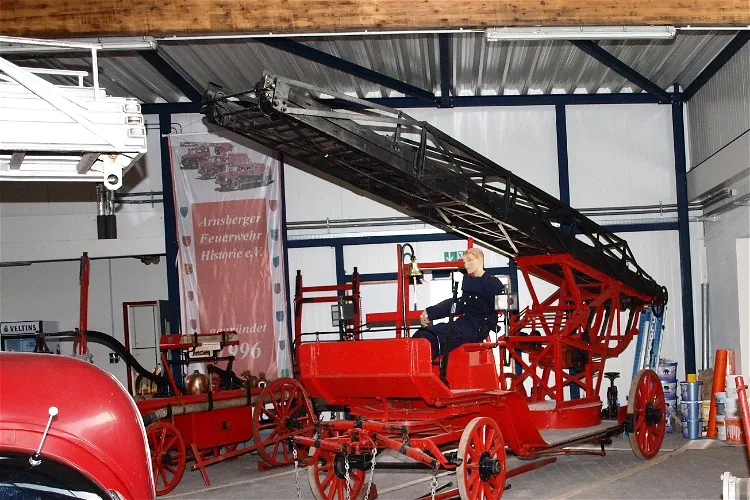
Brennpunkt - Feuerwehrmuseum der Generationen
ArnsbergThe Fire Brigade Museum of the city of Arnsberg, also known as BRENNPUNKT, is conveniently located directly at the Arnsberg train station. This makes it easily accessible for tourists arriving by train. The museum is a part of the city's cultural heritage and offers a unique insight into the history of firefighting in Arnsberg.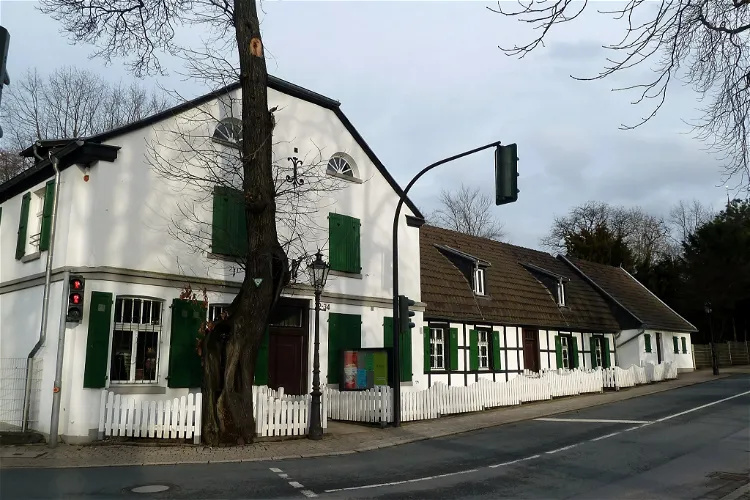
St. Antony-Hütte
OberhausenSt.-Antony-Hütte, located in the Oberhausen district of Klosterhardt, is a former ironworks that holds historical significance as the first ironworks in the Ruhr area. It was established in 1758 by Franz von der Wenge, a canon of Münster. This historical site provides a glimpse into the early industrial history of the region.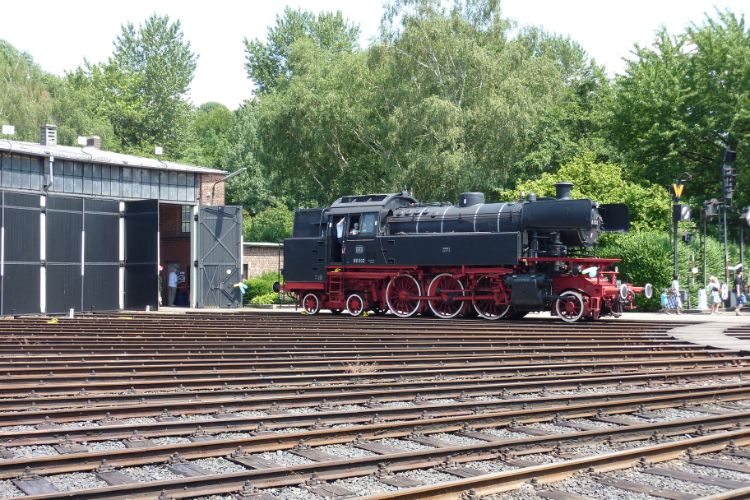
Bochum Dahlhausen Railway Museum
BochumThe Bochum Dahlhausen Railway Museum (Eisenbahnmuseum Bochum) is a railway museum in Bochum in Germany. It is located in a locomotive depot that was built between 1916 and 1918 and consists of 46,000 square metres, making it the biggest railway museum in Germany. In the middle of the museum, there i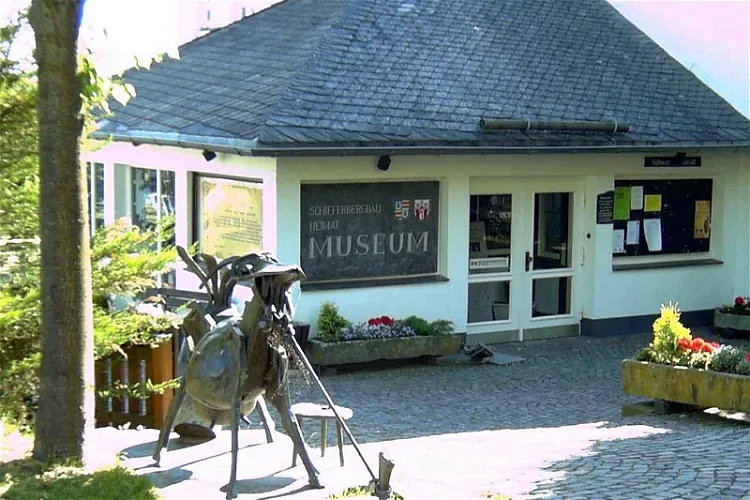
Schieferbergbau- und Heimatmuseum
SchmallenbergThe Westphalian Slate Mining and Local History Museum Holthausen is situated in the district of Holthausen in Schmallenberg, within the Hochsauerlandkreis region. This location offers visitors a chance to explore the rich history and culture of the area while enjoying the scenic beauty of the Hochsauerlandkreis.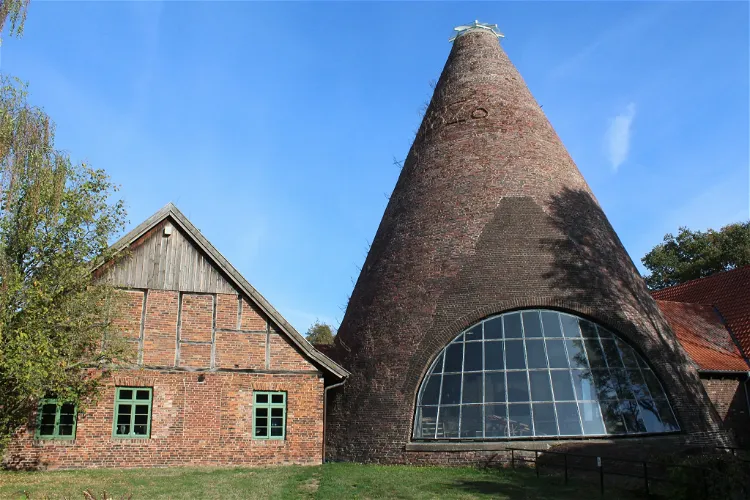
LWL-Museum Glashütte Gernheim
PetershagenThe Gernheim Glassworks, located in Petershagen - Ovenstädt in North Rhine-Westphalia, is a part of the LWL Industrial Museum. This museum is housed in the historic buildings of the former glassworks, which operated as an early industrial factory site from 1812 to 1877. During its operation, the glassworks was a significant producer of glass in the region.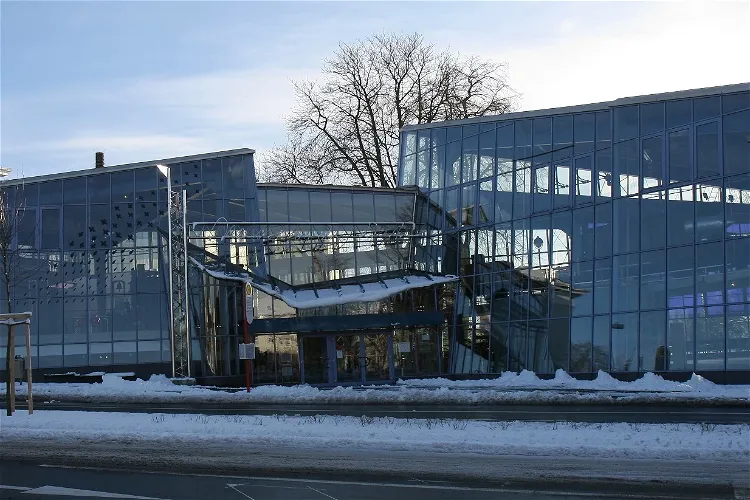
Geschichtsmuseum der Stadt Lüdenscheid
LüdenscheidThe Geschichtsmuseum der Stadt Lüdenscheid is a local history museum that is conveniently located south of the city center of Lüdenscheid. It is situated near the shopping zone Wilhelmstraße and the town hall, making it easily accessible for tourists who are exploring the city.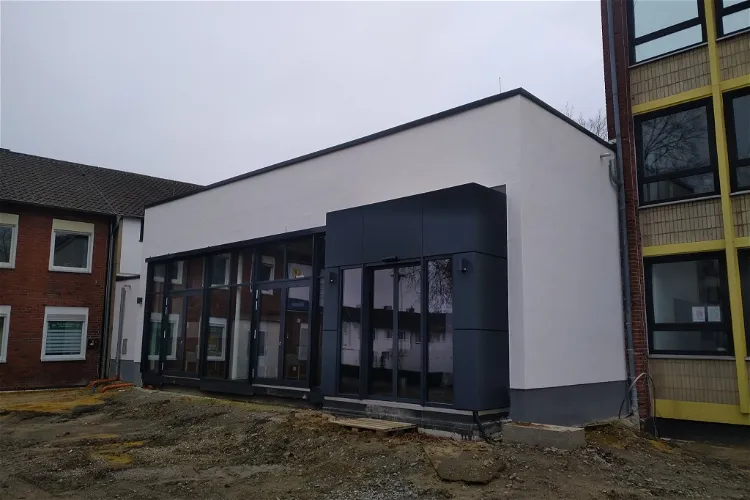
Stadtmuseum Bergkamen
BergkamenThe Stadtmuseum Bergkamen, established in 1965, is situated in the Oberaden district of the city of Bergkamen. This museum is a significant cultural center in Bergkamen, offering a rich collection of historical and contemporary exhibits.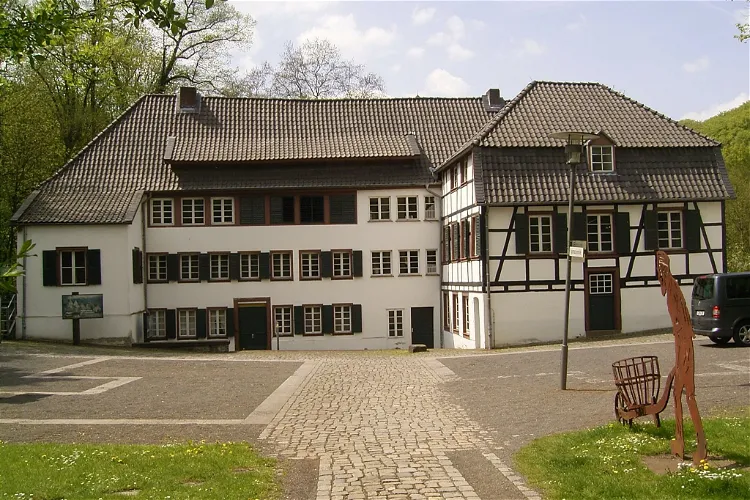
LVR Industrial Museum Paper Mill Old Dombach
Bergisch GladbachThe LVR Industrial Museum Paper Mill Old Dombach is a museum site located in the Sand district of Bergisch Gladbach. It is operated by the Rhineland Regional Association, a body responsible for cultural and historical preservation in the region. The museum is housed in the buildings of the former Old Dombach paper mill and a part of the Dombach Paper Factory New Dombach.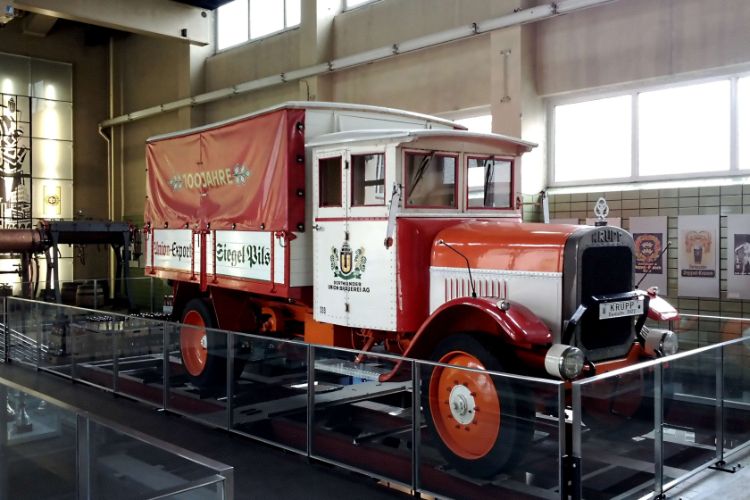
Brewery Museum
DortmundThe Brewery Museum is a beer museum in Dortmund. It is a place devoted to the renowned Dortmund beer. Visitors can learn everything about the history and beer brewing process. The museum focuses on the history of the Dortmund breweries, mostly on the 19th and 20th century with a special focus on the
Deutsches Traktoren und Modellauto Museum
PaderbornThe Deutsches Traktoren und Modellauto Museum, located in Paderborn, has been welcoming visitors since 1998. This museum is a testament to the history of tractors and model cars, offering a unique insight into the evolution of these machines over the years.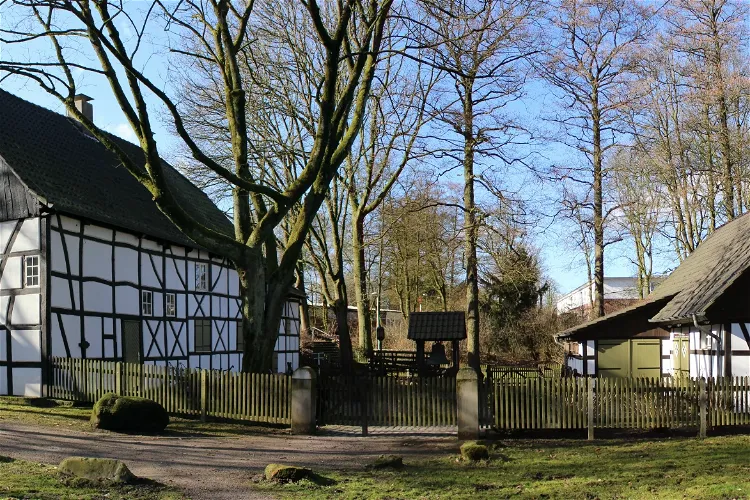
Heimatmuseum Marl
MarlThe Stadt- und Heimatmuseum is a local museum located in the city of Marl. It was founded by Heinrich Keller, who was the head of the Marl local history association. This museum is a testament to the city's rich history and culture, making it a significant point of interest for tourists.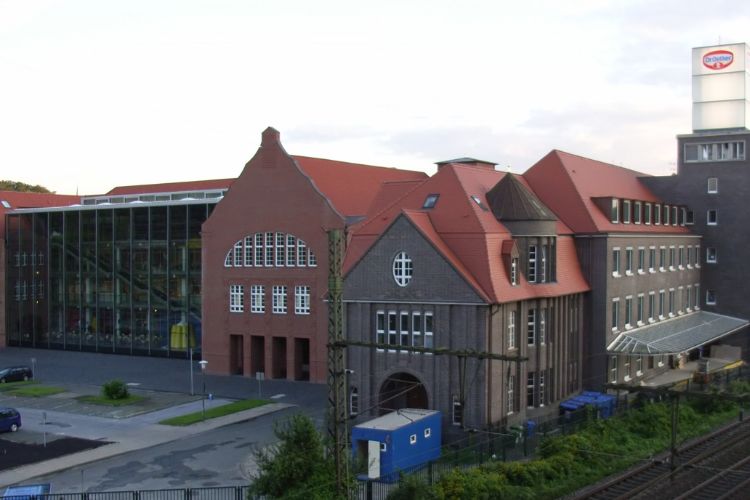
Dr. Oetker Welt
BielefeldDr. Oetker Welt (The Dr. Oetker World) is a museum/attraction in Bielefeld where visitors can discover the Dr. Oetker brand with all their senses. On guided tours and in demonstrations, you will learn about the development of the company, facts about the production and products and facts about the b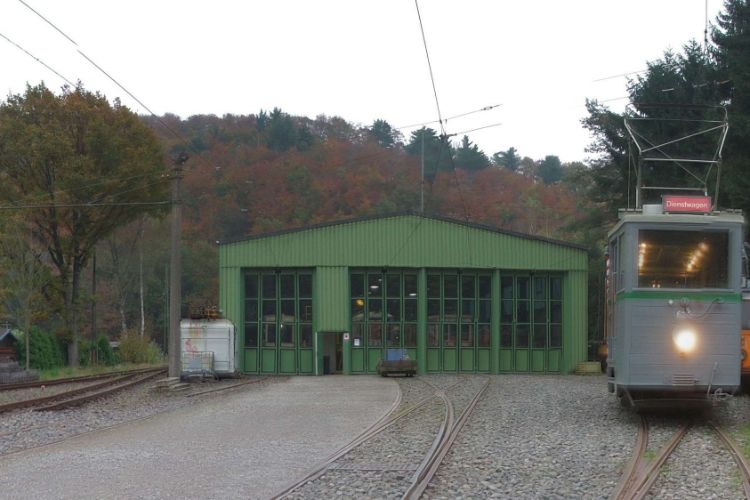
Bergische Museumsbahnen
WuppertalThe Bergische Museumsbahn is a heritage tram museum in Wuppertal that operates its own tram line on original rails with original cars. It is one of the smallest running tram systems in the world.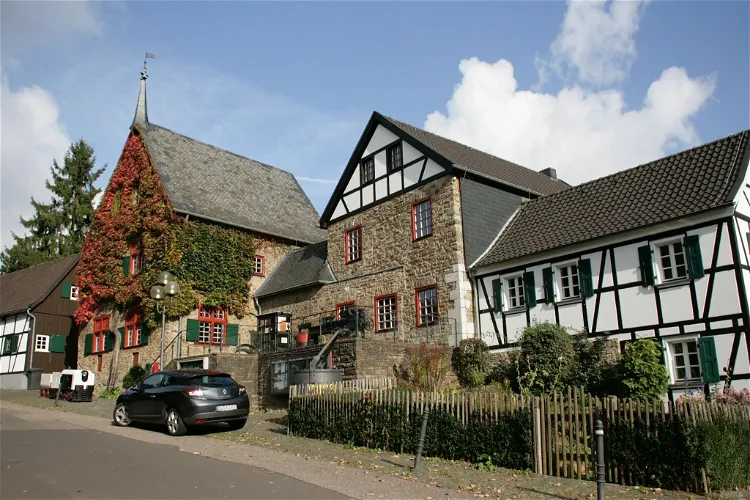
Bergisches Museum für Bergbau, Handwerk und Gewerbe
Bergisch GladbachThe Bergisches Museum for Mining, Crafts and Trade in Bergisch Gladbach offers a unique insight into the history of the region, particularly focusing on the former ore mining in the Bensberger Erzrevier. The museum also showcases the rural-craftsman lifestyles of the local population, with a special emphasis on the 19th and early 20th centuries. This provides a fascinating glimpse into the past, allowing visitors to understand the historical context and way of life during these periods.
Umspannwerk Recklinghausen
RecklinghausenThe Umspannwerk Recklinghausen is a protected monument and a substation of RWE (formerly VEW) in Recklinghausen. Since December 2000, it has also been the location of the RWE Technology Museum 'Strom und Leben', the largest electricity museum in Germany.
Papiermuseum Düren
DurenThe Papiermuseum Düren is one of seven museums in Germany that focus on paper or have a department dedicated to paper. This makes it a unique destination for those interested in the history and production of paper. The museum is located in the city of Düren, North Rhine-Westphalia, and is managed by the city itself.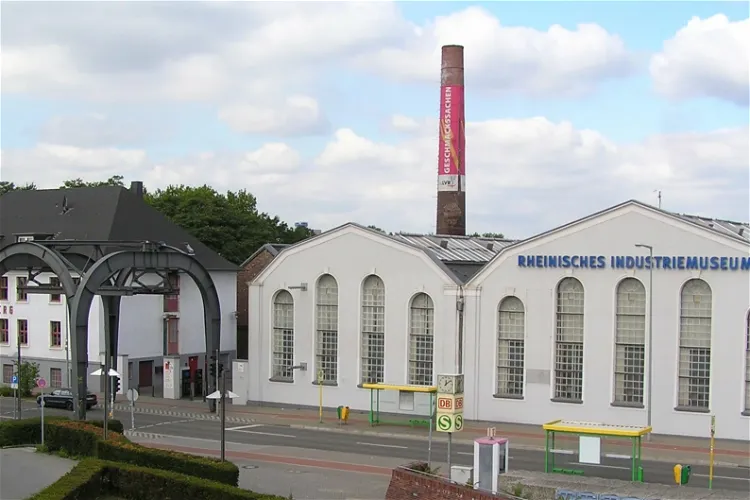
Zinc factory Altenberg
OberhausenToday, the former site of the Zinc Factory Altenberg is home to the LVR Industrial Museum Oberhausen and the administration of the LVR Industrial Museum. It also houses the socio-cultural center Altenberg, which offers a variety of cultural and social activities.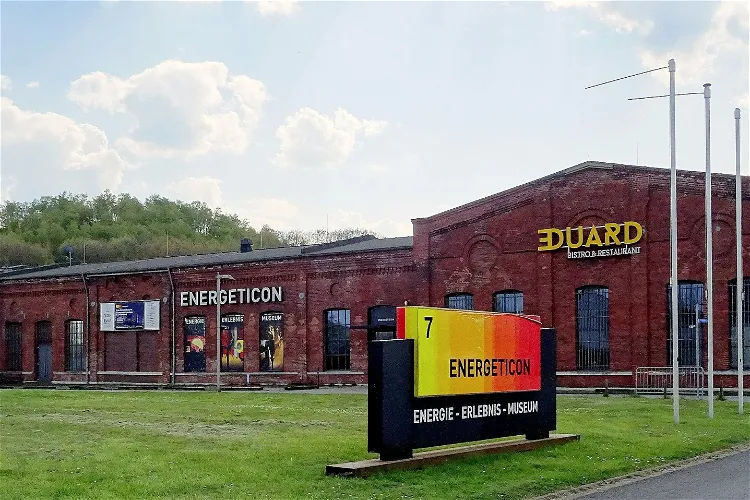
Energeticon
AlsdorfEnergeticon is an interactive museum located in Alsdorf, Germany. It was officially opened to the public on September 8, 2014. The museum offers a unique experience for visitors, providing them with an opportunity to learn about the history and culture of the region.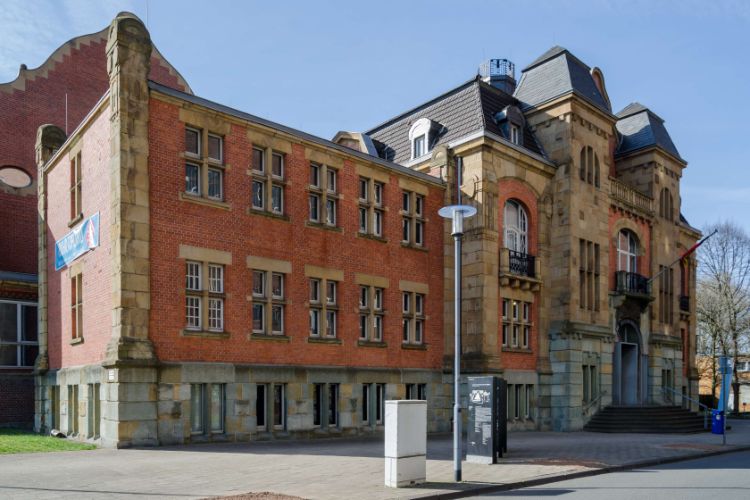
German Inland Waterways Museum
DuisburgThe German Inland Waterways Museum (Museum der Deutschen Binnenschifffahrt) is a museum in Duisburg that is housed in Duisburg's former indoor swimming facility, an Art Nouveau building. The museum exhibits complete ships, including a full-size sailing ship and a reconstructed barge.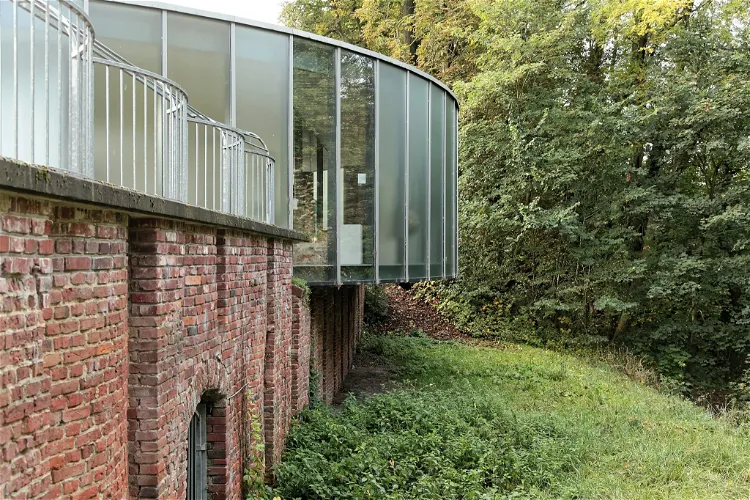
Eiskeller Altenberge
AltenbergeThe Eiskeller Altenberge is a significant historical site in Altenberge, Münsterland, in northern North Rhine-Westphalia. It is an underground ice cellar system that was part of the former Beuing Brothers Brewery. The site is recognized as a protected monument, making it a point of interest for those interested in history and architecture.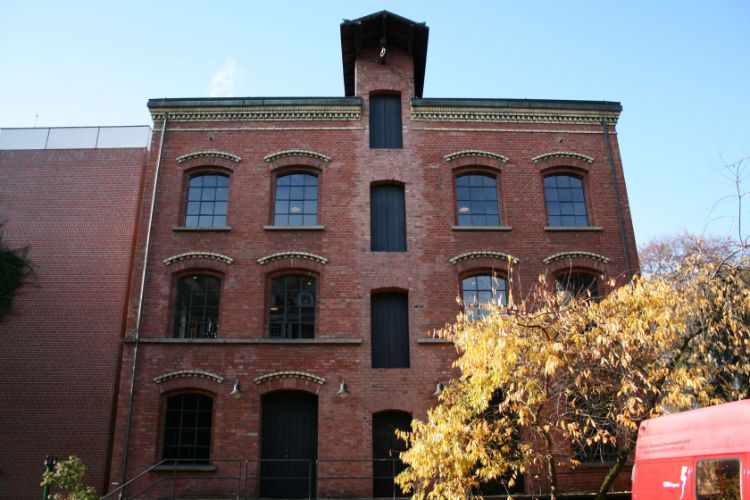
Museum für Frühindustrialisierung
WuppertalThe Museum für Frühindustrialisierung (The Museum of Early Industrialization) is an industrial and social history museum in Wuppertal. The museum is dedicated to the early development of industry in Wuppertal in the multifaceted interplay of technological, social, economic and mental history factors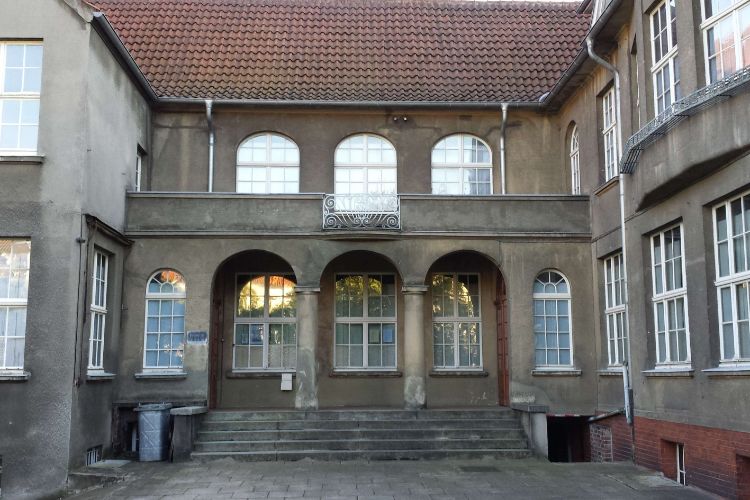
Museum Waeschefabrik
BielefeldThe Museum Wäschefabrik is a museum in Bielefeld that illustrates the working conditions in a linen factory in the middle of the 20th century at its original location. The museum has no exhibition in the traditional sense, but can be seen as a walk-in monument. At the original workstations, backgrou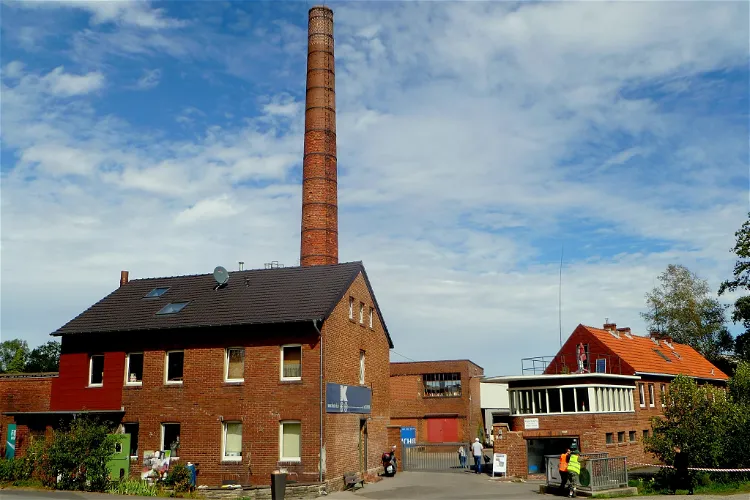
Tuchwerk Aachen
AachenTuchwerk Aachen, previously known as Textilmuseum Aachen, is a public institution with a museum-like character. It is situated in the historic and protected Stockheider Mill, located in the Soers landscape park of the Aachen district of Laurensberg. This location offers a unique blend of history and nature, making it an interesting destination for tourists.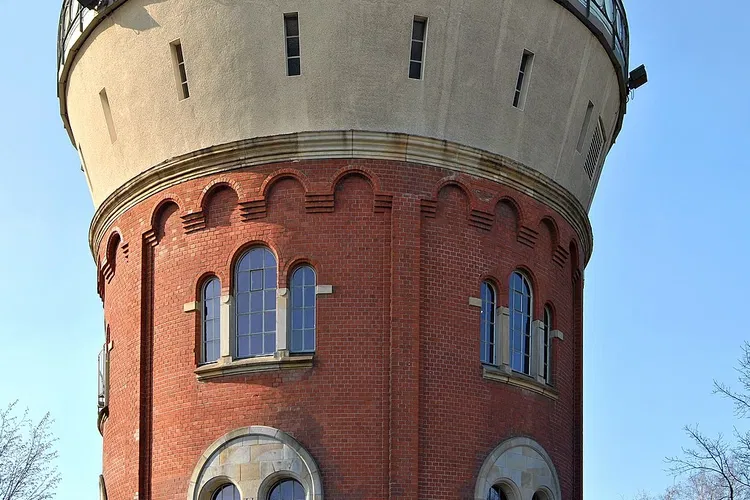
Museum zur Vorgeschichte des Films
Mülheim an der RuhrThe Museum zur Vorgeschichte des Films, or the Museum of the Prehistory of Film, is a permanent exhibition that showcases the evolution of moving images prior to the invention of cinematography. This museum provides a unique opportunity to understand the history and development of moving images, making it a fascinating destination for those interested in the history of film and photography.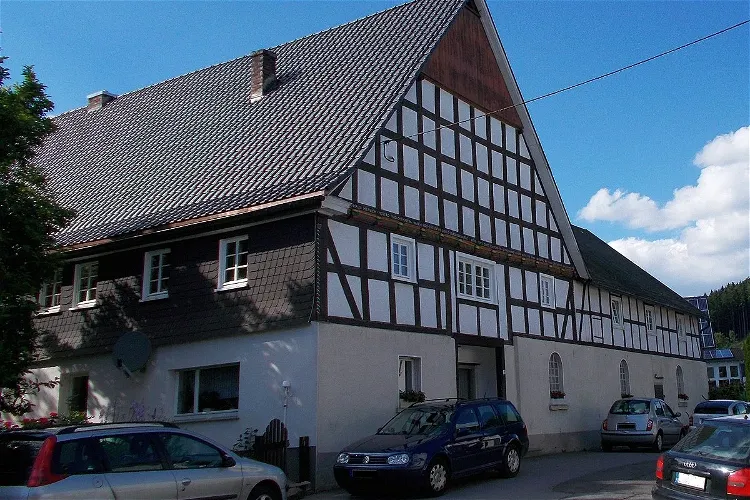
Museum Heimatstube Schönholthausen
FinnentropThe Museum "Heimatstube" Schönholthausen is a local history museum situated in the village of Schönholthausen, which is part of the municipality of Finnentrop in the Olpe district of North Rhine-Westphalia. This museum is a great place to learn about the local history and culture of the region.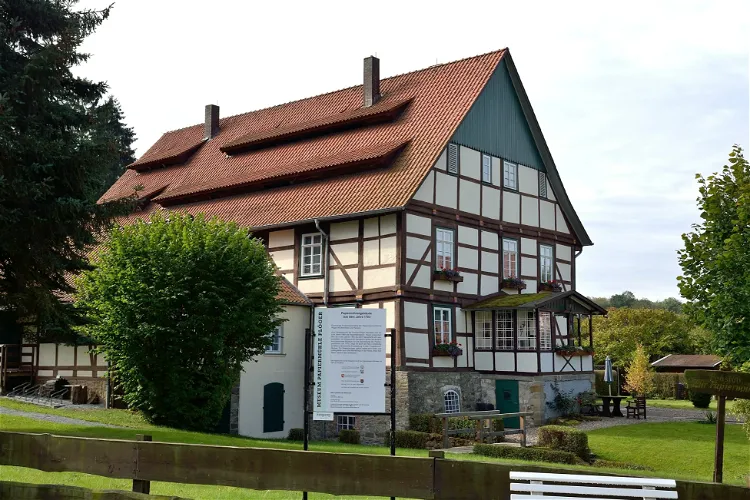
Papiermühle Plöger
Schieder-SchwalenbergThe Papiermühle Plöger is a unique destination that offers a glimpse into the past. This former paper mill, located in Schieder in the Lippe district of North Rhine-Westphalia, has been transformed into a museum. Visitors can explore the history of papermaking and the mill's role in the local community.
Bauernmuseum Selfkant
SelfkantThe Bauernmuseum Selfkant comprises a bakehouse and a 2000 m² hall. The museum's collection includes 20 historical tractors and a variety of everyday farming objects. These exhibits provide a glimpse into the agricultural past and offer an educational experience for visitors of all ages.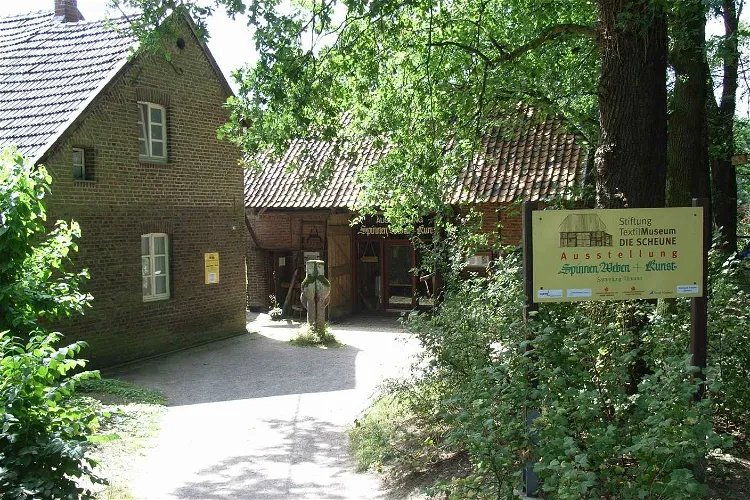
Textilmuseum Die Scheune
NettetalLocated in the district of Hinsbeck -Hombergen in Nettetal, the Textilmuseum Die Scheune offers a unique insight into the world of textile manufacturing. The museum showcases a variety of spinning machines, looms, and other textile machines, along with corresponding work processes. In addition, it hosts exhibitions with changing focus topics, providing a dynamic and engaging experience for visitors.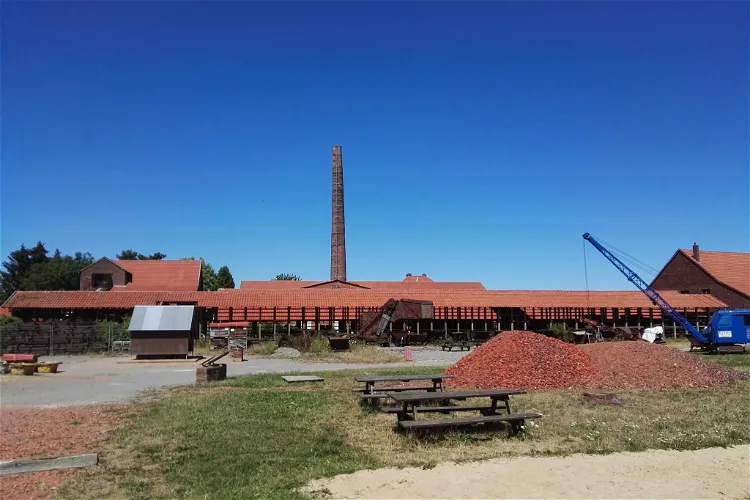
Ziegelei Lage
LageZiegelei Lage is one of the eight locations of the LWL Museums for Industrial Culture. It is situated in Lage, North Rhine-Westphalia. This museum is a part of a larger network of museums that focus on industrial culture, making it a significant destination for those interested in this aspect of history.
Historisches Museum Bielefeld
BielefeldHistorisches Museum Bielefeld (The Historical Museum of the City of Bielefeld) illustrates the history of the city of Bielefeld and the region Ostwestfalen-Lippe with a focus on industrial history. The exhibition is housed in several halls of the former Ravensberger spinning mill, allowing visitors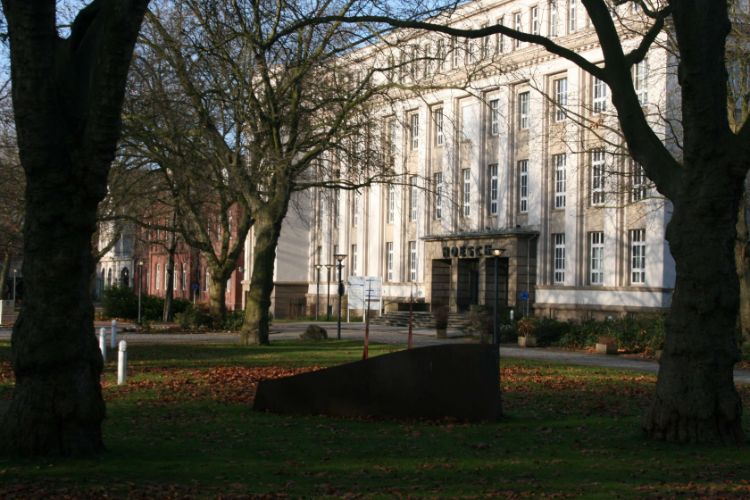
Hoesch Museum
DortmundThe Hoesch Museum is a museum in Dortmund that is housed in the historic concierge building of the Westfalenhütte, the museum presents an overview of 160 years of company history, the history of technology and the social history of steel work, combined with Dortmund's city history.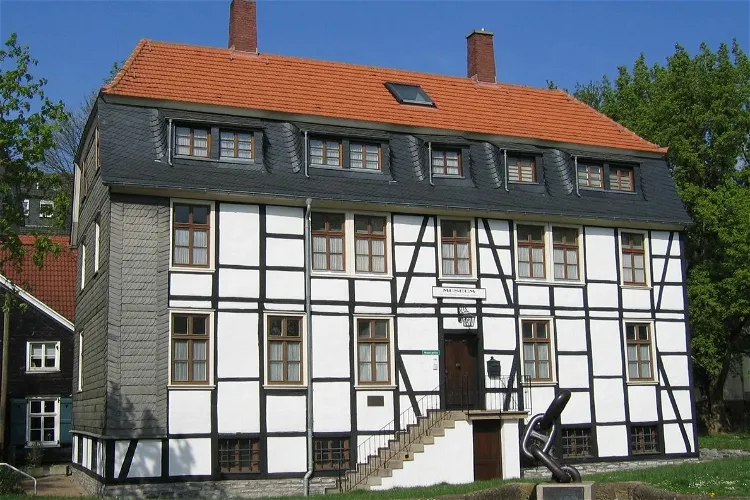
Museum für Handwerk und Postgeschichte
IserlohnThe Iserlohn Museum for Crafts and Postal History is a unique blend of technology and postal history, located in the heart of Iserlohn. The museum, which opened its doors to the public on July 31, 1999, offers a deep dive into the historical representation of the Märkisches crafts and the history of the post in the city of Iserlohn and the County of Mark.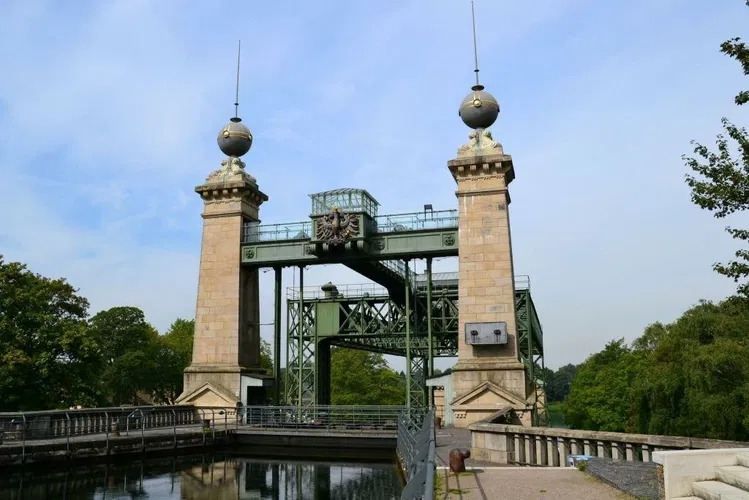
Henrichenburg boat lift
WaltropThe Henrichenburg boat lift, located in Waltrop Lock Park, is a significant historical site. The park houses several structures, including the old Henrichenburg boat lift constructed in 1899, a disused shaft lock from 1912, the new boat lift built in 1962, and a modern ship lock from 1989. These structures provide a comprehensive view of the evolution of boat lift technology and the history of the Dortmund-Ems-Kanal.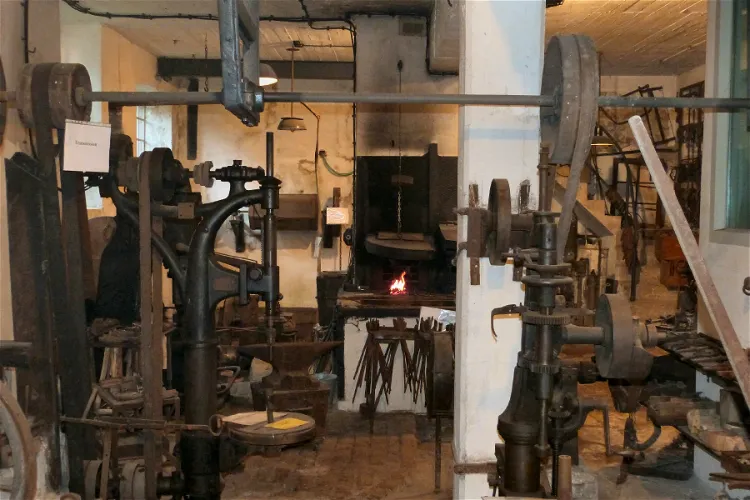
Hammerschmiede Gnuse
VlothoThe Hammerschmiede Gnuse is a historical hammer mill situated in the district of Valdorf, in the East Westphalian city of Vlotho, in the Herford district of North Rhine-Westphalia. This location offers visitors a glimpse into the industrial past of the region, with its rich history and preserved architecture.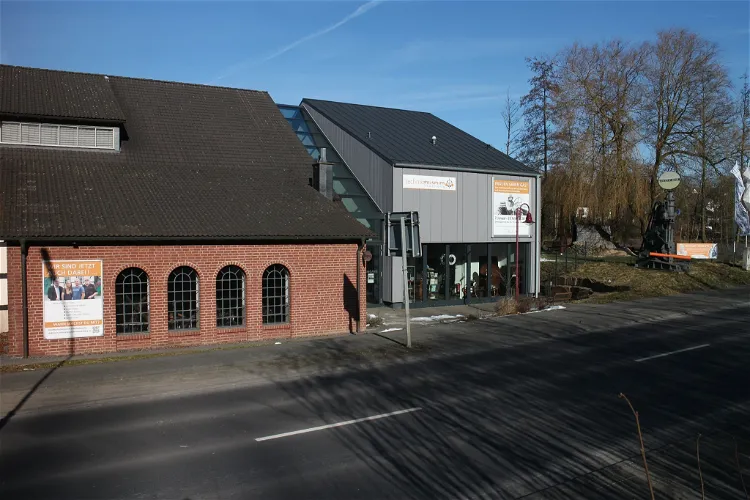
Technikmuseum Freudenberg
FreudenbergThe Technikmuseum Freudenberg, located in the Büschergrund district, is an exhibition that showcases a variety of machines and technical devices. This museum provides a comprehensive overview of the world of work and the history of technology.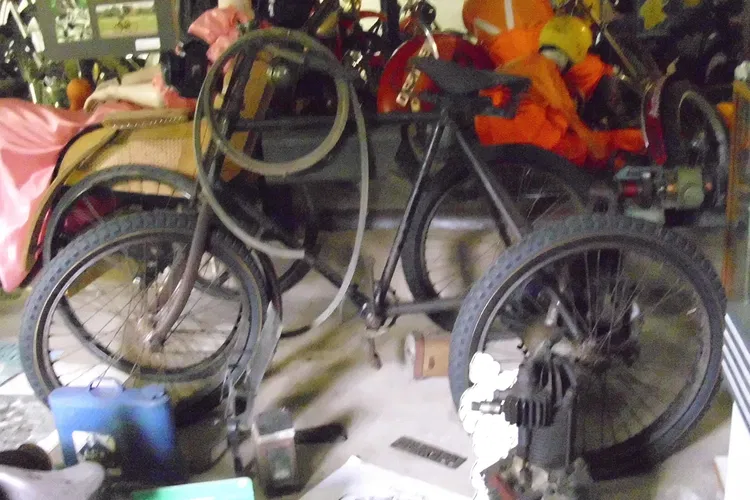
Motorrad- und Puppenmuseum
HarsewinkelThe Motorradmuseum Heiner Beckmann is a privately run technical history museum located in the village of Greffen, Harsewinkeler, in the district of Gütersloh, North Rhine-Westphalia. This museum offers a unique insight into the history of motorized two-wheelers and is a great place for enthusiasts and history buffs alike.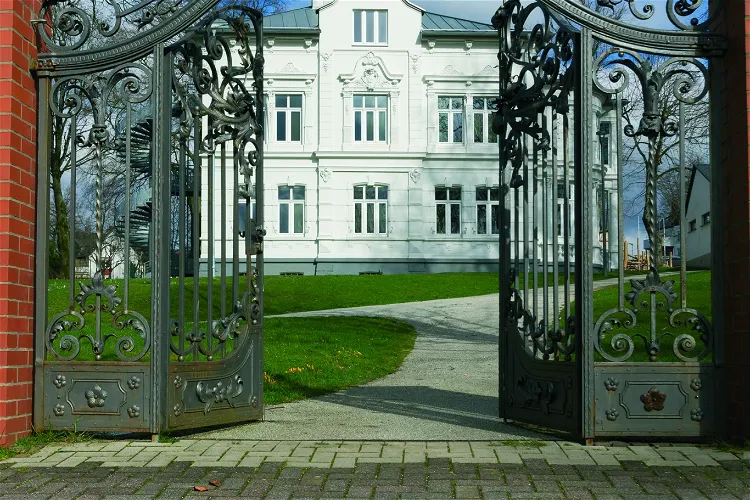
Regionalmuseum Villa Wippermann
HalverVilla Wippermann, located in Halver, is a former residential building that has been transformed into a cultural venue. It is now home to the Regional Museum 'Oben an der Volme'. This historic building offers a unique insight into the region's past and is a significant cultural hub in the area.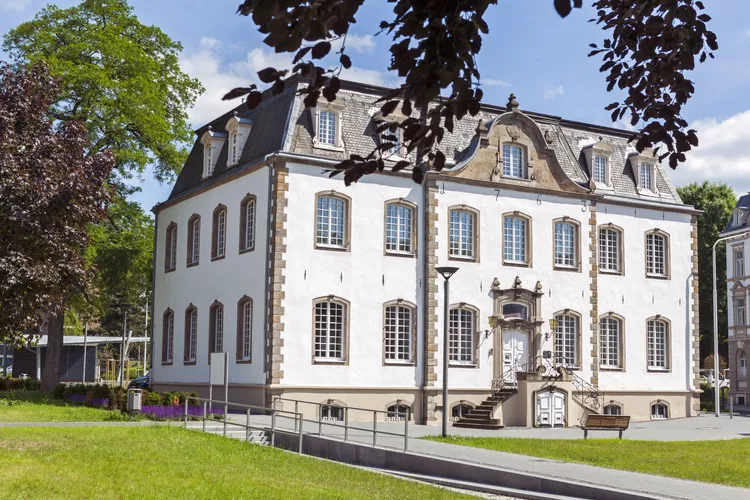
Stadtmuseum Iserlohn
IserlohnThe Stadtmuseum Iserlohn is a local history museum situated in the city of Iserlohn. It is housed in the Baroque building Fritz-Kühn-Platz 1, which is located next to the St. Pankratius Church. This location adds to the historical charm of the museum and provides a picturesque setting for visitors.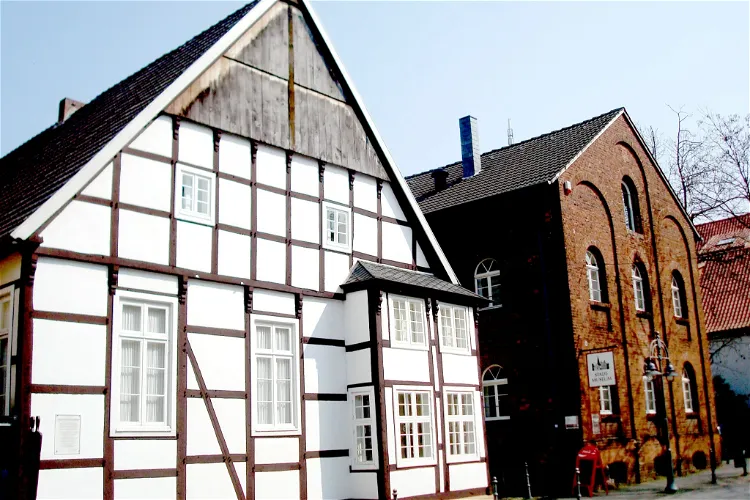
Gütersloh Town Museum
GüterslohThe Stadtmuseum Gütersloh, also known as the Gütersloh Town Museum, is located in Gütersloh, Germany. The museum is dedicated to the history of the city and offers a comprehensive look into its past. It is a place where visitors can learn about the city's evolution, from its early beginnings to its current state.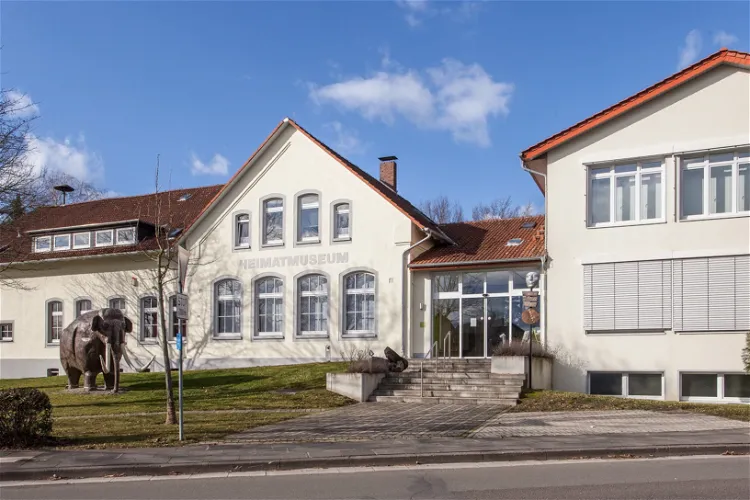
Museum der Stadt Löhne
LöhneThe Museum der Stadt Löhne is a regional history museum situated in the East Westphalian city of Löhne, North Rhine-Westphalia. It offers a deep dive into the history and culture of the region, making it a worthwhile visit for those interested in understanding the local heritage.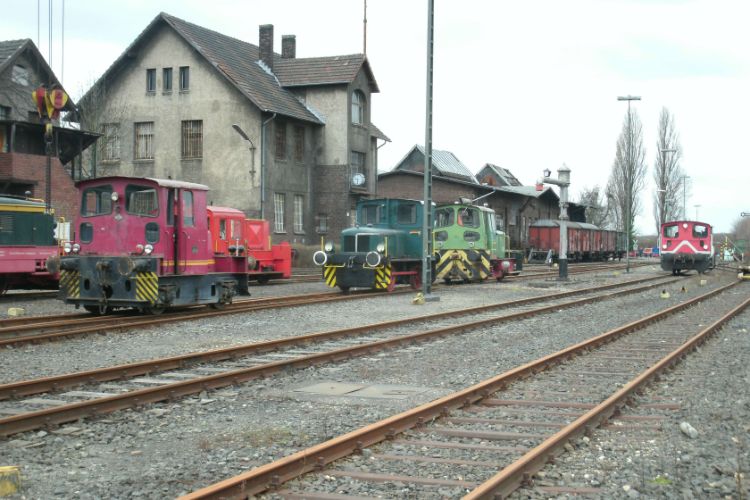
Rheinisches Industriebahn-Museum
CologneThe Rheinische Industriebahn-Museum (RIM) is a museum in Cologne. The museum preserves and exhibits industrial rail vehicles and researches and documents their history. The Rheinisches Industriebahn-Museum owns about 70 traction units of different gauge (600 mm and standard gauge) and traction type,
Motorradmuseum
IbbenbürenThe Motorradmuseum Ibbenbüren is a privately run motorcycle museum located in Ibbenbüren, North Rhine-Westphalia. It is housed in a former village school building in Ibbenbüren-Lehen. The museum was founded in 1978 by Robert Stockmann, who still runs it today. It is a unique destination for motorcycle enthusiasts and history buffs alike.
Textilfabrik Cromford
RatingenThe Textilfabrik Cromford, located in Ratingen, North Rhine-Westphalia, Germany, holds a significant place in history as it was the first cotton spinning mill on the European mainland. Constructed in 1783 by Johann Gottfried Brügelmann, this mill marked a significant advancement in the textile industry.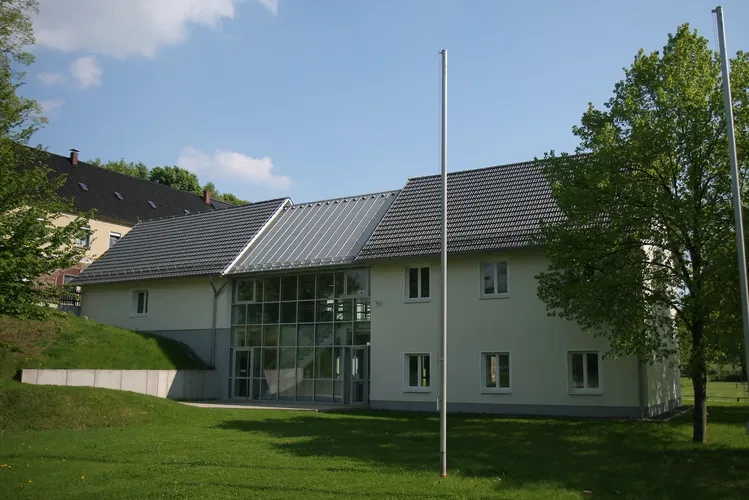
Wendener Hütte
WendenThe Wendener Hütte is a historical site that once served as an ironworks and hammer mill during the Industrial Age. Located near Wenden, Germany, this site is open to visitors from April to October. It offers a unique opportunity to explore the history of the iron processing industry in Germany.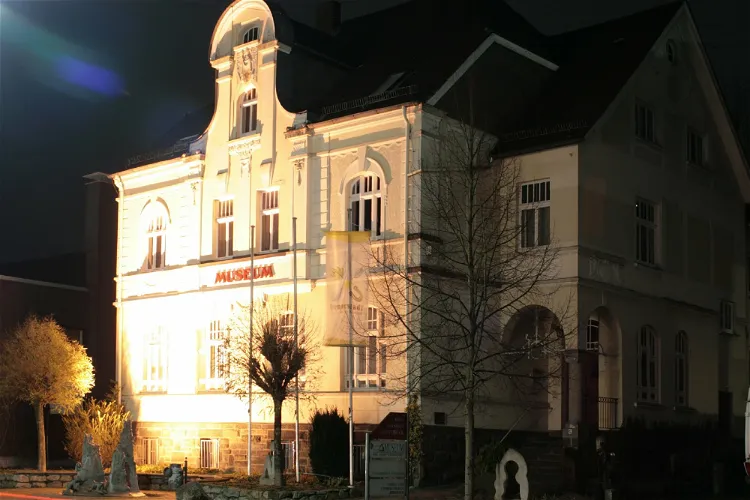
Museum der Stadt Lennestadt
LennestadtThe Museum der Stadt Lennestadt is situated in the district of Grevenbrück. The building that houses the museum was originally constructed in 1910 and served as the “Royal Prussian Cadastre Office Förde” in the Olpe district. This historical building adds a unique charm to the museum, making it an interesting destination for tourists who appreciate architecture and history.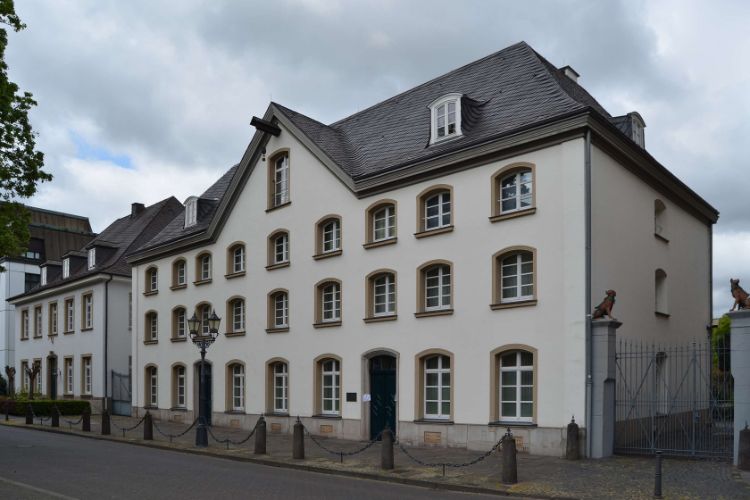
Haniel Museum
DuisburgThe Haniel Museum is a museum in Duisburg. The museum is housed in the oldest building in Ruhrort, the former home and founder of the company Haniel which was once known as the "Ruhrorter Packhaus". In this historic warehouse, on three floors, the visitor experiences how the family business develope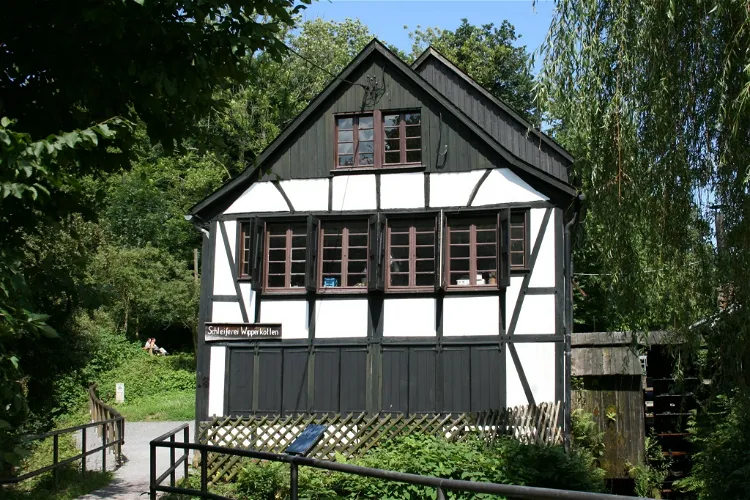
Wipperkotten
SolingenThe Wipperkotten is a significant historical site in Solingen, being one of the two largely original grinding cottages located on the Wupper. This unique structure provides a glimpse into the city's industrial past and is a testament to the craftsmanship and industry that once thrived in the region.
Hendrich's Drop Forge
SolingenThe LVR Industriemuseum, specifically the Hendrich's Drop Forge, is located in the city of Solingen in North Rhine-Westphalia, Germany. This museum is a significant part of the city's industrial heritage, offering visitors a glimpse into the region's rich history of metalworking and manufacturing.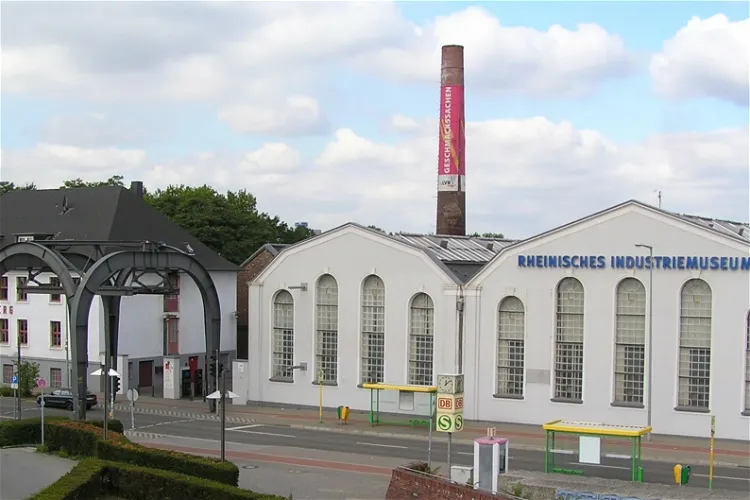
LVR-Industriemuseum
OberhausenThe LVR-Industriemuseum in Oberhausen is one of six locations of the LVR-Industriemuseum. This makes it a part of a larger network of industrial heritage sites, offering a comprehensive insight into the region's industrial past. Visitors can explore different aspects of industrial history at each location, making each visit unique and informative.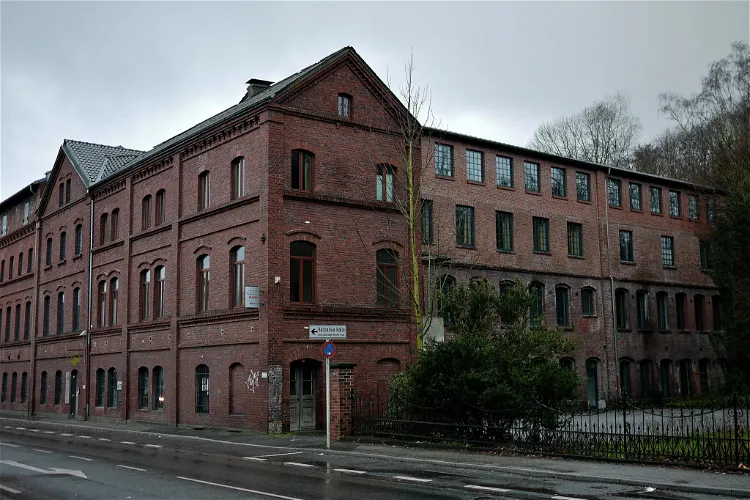
Leather and leather tanning museum
Mülheim an der RuhrThe Leather and Tanning Museum in Mülheim an der Ruhr is a private institution that focuses on the history and manufacturing process of leather and its various end products. This museum provides a comprehensive insight into the evolution of leather production, from its early stages to the modern techniques used today.
Glasmuseum Bad Driburg
Bad DriburgThe Glasmuseum Bad Driburg is a city museum located in Bad Driburg, Germany. The museum is dedicated to the theme of glass, showcasing the history and artistry of glass production and refinement in the region since the 16th century. It is housed in the Heinz-Koch-Haus, a building named after a significant benefactor of the museum, Heinz Koch.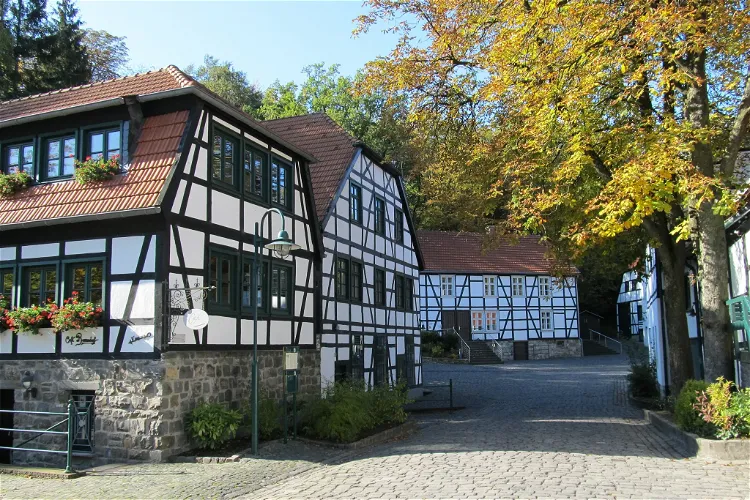
The historic factory Maste-Barendorf
IserlohnThe Historic Factory Maste-Barendorf, located in Iserlohn, is a significant cultural monument. It comprises ten buildings that date back to the 19th century, each bearing witness to the industrial history of the region. The factory complex is now owned by the city of Iserlohn, preserving its historical significance for future generations.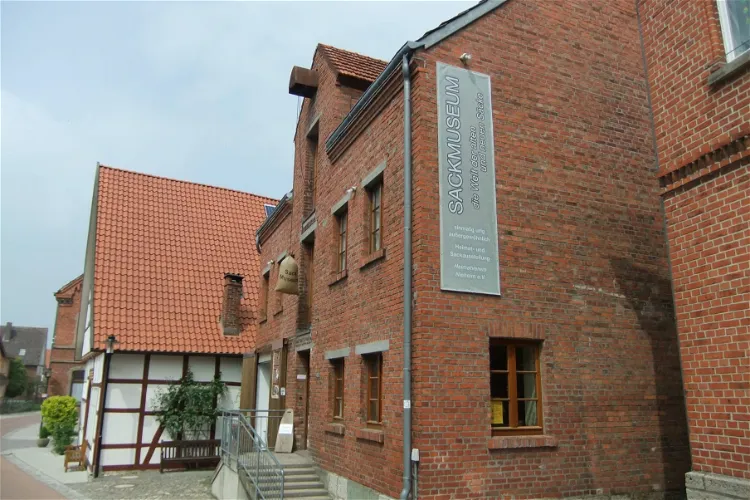
Sackmuseum
NieheimThe Sackmuseum, located in Nieheim, North Rhine-Westphalia, is a unique museum that collects and exhibits bags of all kinds. This includes everything from the smallest mail bag in the world to the largest, the hop sack. The museum's collection is extensive, showcasing bags used for various purposes such as transporting money, letters, packages, coal, shoes, instruments, dowry, clothes, and even garbage.
Bocholter Handwerksmuseum
BocholtThe Handwerksmuseum in Bocholt is a unique destination that showcases a total of 28 different crafts on an area of 720 m². Visitors can explore a wide range of professions, from traditional to contemporary, and gain a deeper understanding of the history and evolution of these crafts.
Drahtrolle Am Hurk
AltenaThe Drahtrolle 'Am Hurk' is a significant monument situated in the Evingsen district of the city of Altena in Sauerland. This location is steeped in history and offers a unique insight into the industrial past of the region. Visitors can appreciate the architectural significance of the monument and its role in the local industry.
Deichdorfmuseum Bislich
WeselThe Deichdorfmuseum Bislich is a museum dedicated to local history and natural history, situated in the district of Bislich in Wesel. It offers a unique opportunity to delve into the rich history and natural environment of the region. The museum's exhibits cover a wide range of topics, from local cultural history to the Rhine as a habitat, including dike construction, fishing, and shipping.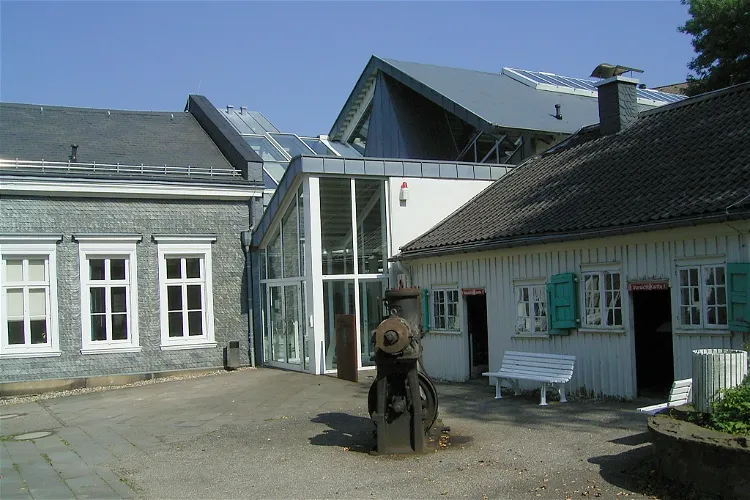
Deutsches Werkzeugmuseum
RemscheidThe Deutsches Werkzeugmuseum boasts an extensive collection of tools spanning various millennia. The collection ranges from Stone Age tools to those of the 21st century, offering a comprehensive look at the evolution of tools throughout history.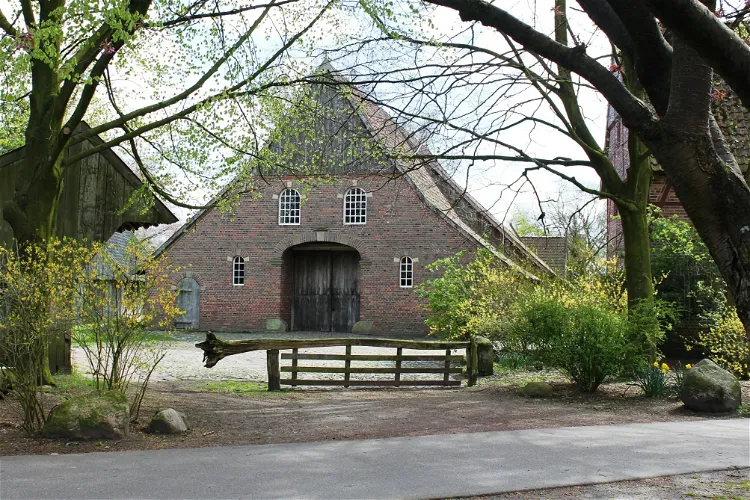
Bauermhausmuseum
VredenThe Bauernhaus-Museum, located in the city park of Vreden, is a collection of twelve buildings that together form a 'historical West Münsterland farm complex'. This open-air museum offers a unique insight into the rural life of the 19th and early 20th centuries, showcasing the architectural and cultural heritage of the region.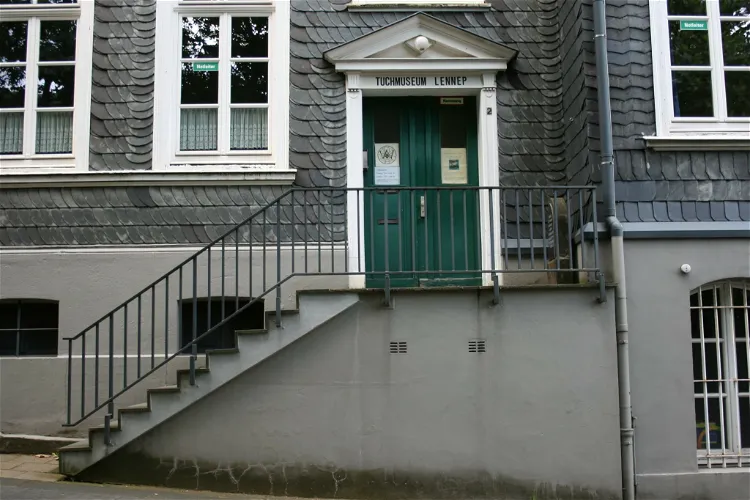
Tuchmuseum Lennep
RemscheidThe Tuchmuseum Lennep, located in Remscheid, is a museum dedicated to the history of the cloth industry in the Bergisches Land. It provides a comprehensive overview of the industry's development and its impact on the region. The museum is housed in the building of GGS Freiherr vom Stein, located at Hardtstraße 2.
Bergbaumuseum Siciliaschacht
LennestadtThe Bergbaumuseum Siciliaschacht, located in the Meggen district of Lennestadt, is a mining museum that offers a glimpse into the past. It showcases the former mining facilities of the Sachtleben company, providing visitors with a unique insight into the history and operations of the mining industry in the region.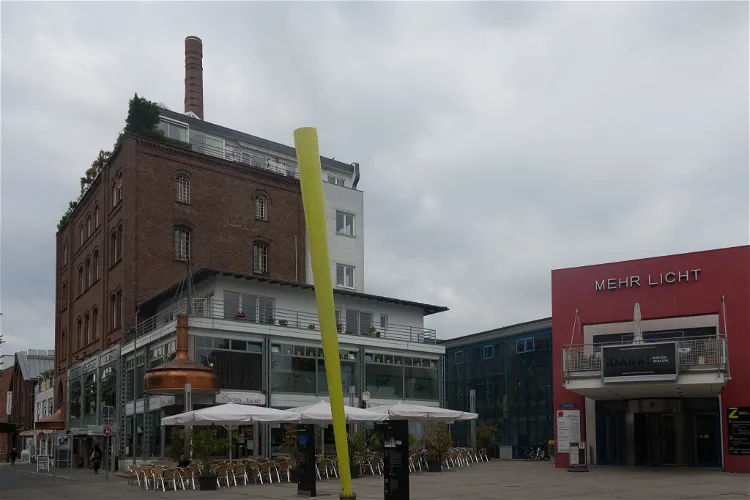
Center for International Light Art
UnnaThe Centre for International Light Art (CILA) is a unique art museum located in Unna, Germany. It is the only museum in the world that is solely dedicated to the collection and presentation of light art. This makes it a unique destination for art enthusiasts and tourists alike who are interested in this specific form of art.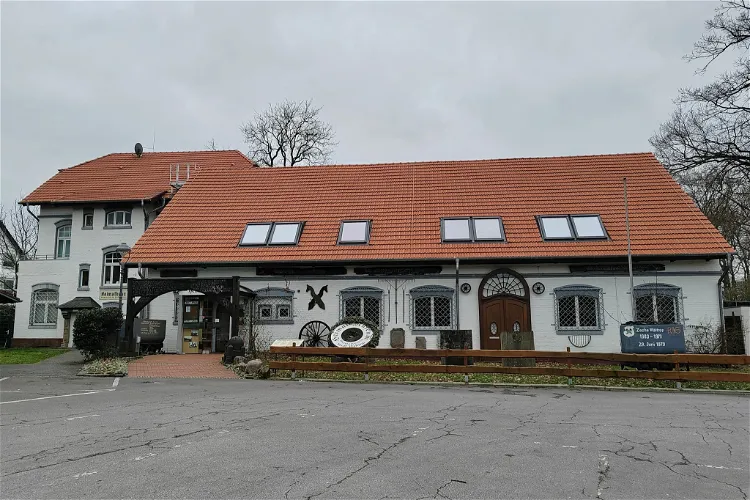
Heimatmuseum Waltrop
WaltropThe Heimatmuseum Waltrop, a museum dedicated to the local history of Waltrop, has been situated in the Riphaushof since 1996. This location provides a unique setting for the museum, which showcases the rich history of the area.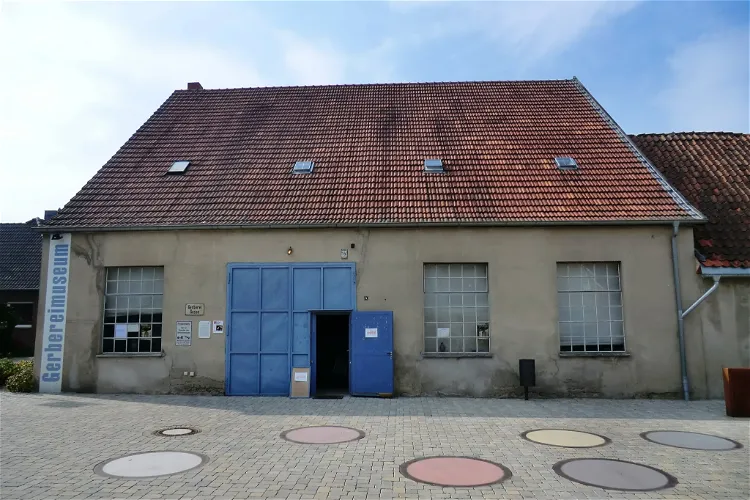
Gerbereimuseum Enger
EngerThe Gerbereimuseum Enger is a craft museum situated in the city of Enger, located in the East Westphalian region of North Rhine-Westphalia. This museum offers a unique insight into the history and techniques of the tanning industry, making it an interesting destination for those interested in history, crafts, and industry.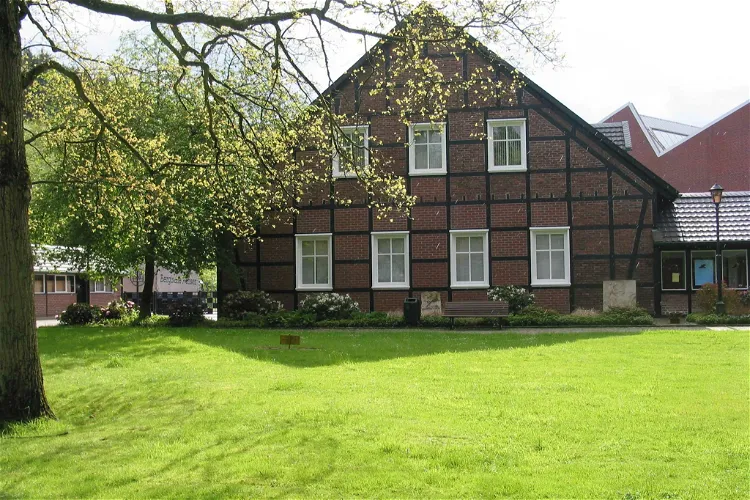
Museum Achse, Rad und Wagen
WiehlThe Museum Achse, Rad und Wagen, located in Wiehl in the Oberbergischer Kreis in North Rhine-Westphalia, Germany, was inaugurated in 1952. It was originally established as a factory museum for the company BPW Bergische Achsen Kommanditgesellschaft.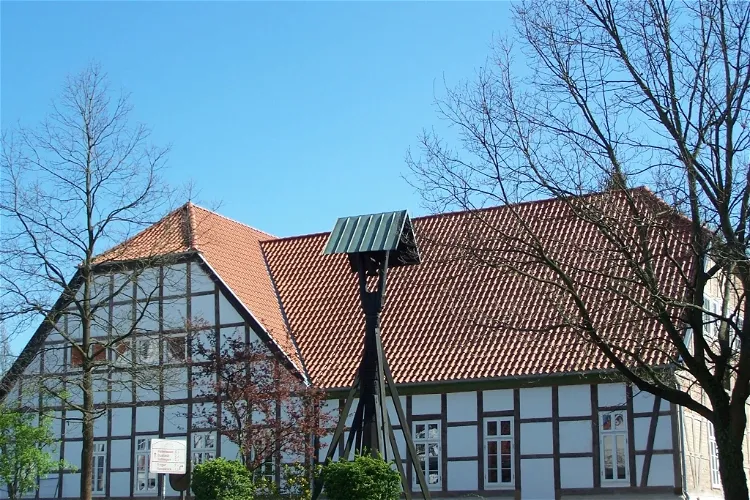
Deutsches Tabak- und Zigarrenmuseum
BündeThe Deutsches Tabak- und Zigarrenmuseum, located in the East Westphalian city of Bünde in the Herford district, is a unique museum that showcases the products and production methods of the tobacco industry. Visitors can learn about the history of tobacco production, from the cultivation of the plant to the manufacturing of cigars and cigarettes. The museum provides a comprehensive overview of the industry's evolution and its impact on the region.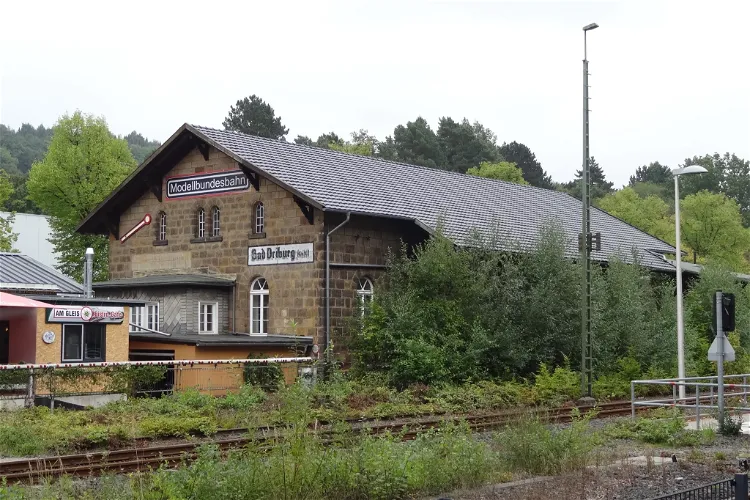
Modellbundesbahn Brakel
BrakelThe Modellbundesbahn, also known as the Model Federal Railway, is a publicly accessible model railway layout located in Brakel. This fascinating exhibit was first opened to the public on October 14, 2005, and has since been a popular attraction for both locals and tourists alike.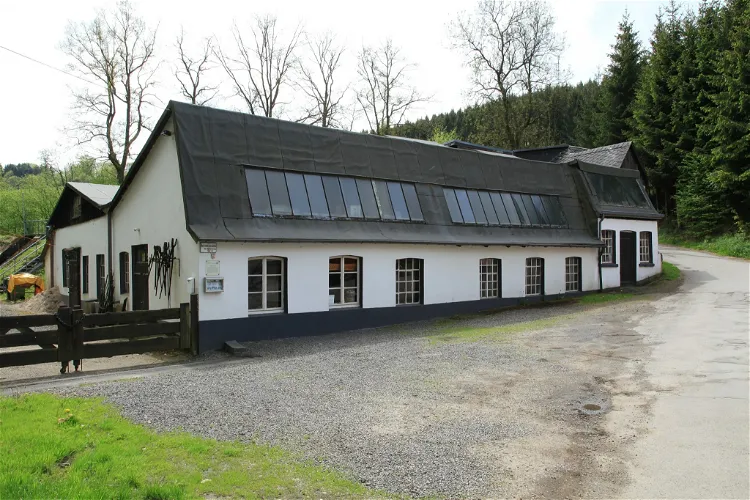
Schleipe-Hammer
KierspeSchleiper Hammer, located in Kierspe, is a former hammer mill that has been transformed into a technology museum. This museum showcases the tradition of broadware forging in the upper Volme valley during the 1930s. It also features an exhibit on the early days of Bakelite pressing, a manufacturing process that also developed in the upper Volme valley during the 1930s.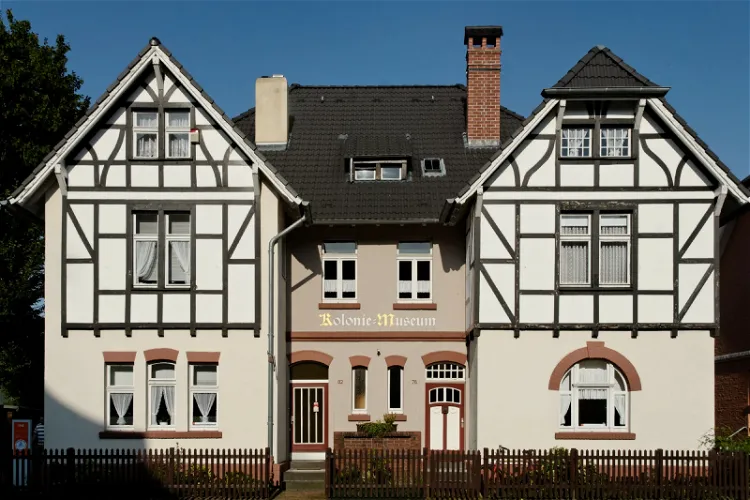
Koloniemuseum
LeverkusenThe Kolonie-Museum in Leverkusen - Wiesdorf is a unique institution that documents the everyday life in the Bayer factory settlements, also known as Bayer colonies. These settlements were established for the employees of the Bayer factory and their families. The museum provides an authentic impression of the living conditions of the Bayer factory workers, making it a fascinating destination for those interested in social history and industrial heritage.- 126
Verkehrshistorische Ausstellung Galerie
LüdenscheidThe Verkehrshistorische Ausstellung Galerie is a private transport museum located in Lüdenscheid. It specializes in the history of public transport, with a particular emphasis on bus transport and small railways in the Märkischer Kreis area. This museum provides a unique opportunity to delve into the history of transportation in this region. - 127
Radio- und Telefonmuseum - im Verstärkeramt e.V.
Rheda-WiedenbrückThe term 'Verstärkeramt' is an outdated term that refers to cable-bound relay stations that amplify electrical communication signals. This term originated from the era when the operation of the public telephone network was under state administration. This historical context provides an interesting backdrop to the museum's exhibits. - 128
Fernmeldemuseum Aachen
AachenThe Fernmeldemuseum Aachen, established on July 1, 1997, is located in the premises of Telekom in Aachen. The museum is dedicated to the history of communication technology, providing an insight into the evolution of this field. - 129
Automobilmuseum Dortmund
DortmundDortmund owes the Automobilmuseum Dortmund to the initiative of the Edler von Graeve family. In the constantly changing exhibition, the museum displays high-quality exhibits and vintage cars that illustrate the history of the automobile. - 130
Westfälisches Eisenbahnmuseum Münster
MünsterThe Westfälisches Eisenbahnmuseum was located in the Hansaviertel district of Münster. The museum primarily focused on the theme of railway depots from the 1950s. This gives visitors a unique insight into the history and operations of these depots during this period. - 131
Eisenbahnmuseum Alter Bahnhof Lette
CoesfeldThe term 'Museumsbahnhof' refers to railway stations that serve as their own exhibit for historical railway operations. These stations are not just buildings, but also include track facilities that were once used for rail traffic or are still used for the operation of a museum railway. As a visitor, you can expect to see a functional building that is part of a railway museum, offering a unique insight into the history of railway operations. - 132
Museum in der Alten Kornbrennere
SundernThe Alte Kornbrennerei, a protected monument, is situated in the heart of Sundern (Sauerland). This historic building is home to the local museum 'Alte Kornbrennerei'. The museum offers a glimpse into the region's past, showcasing its rich history and heritage. - 133
Schlepper- und Geräte Museum Altenberge e.V.
AltenbergeThe Schlepper- und Geräte Museum in Altenberge is dedicated to the history of agriculture in Westphalia, with a particular focus on the tools and machines that were used. This provides a unique insight into the evolution of farming practices in the region, making it an interesting destination for those interested in history, agriculture, or machinery. - 134
Museum der historischen Waschtechnik
BrockThe Museum der historischen Waschtechnik boasts a collection of over 5,000 exhibits. These range from small soap pieces to industrial washing machines, providing a comprehensive overview of the evolution of washing technology. Visitors can expect to see a wide variety of items, each with its own unique story and historical significance.